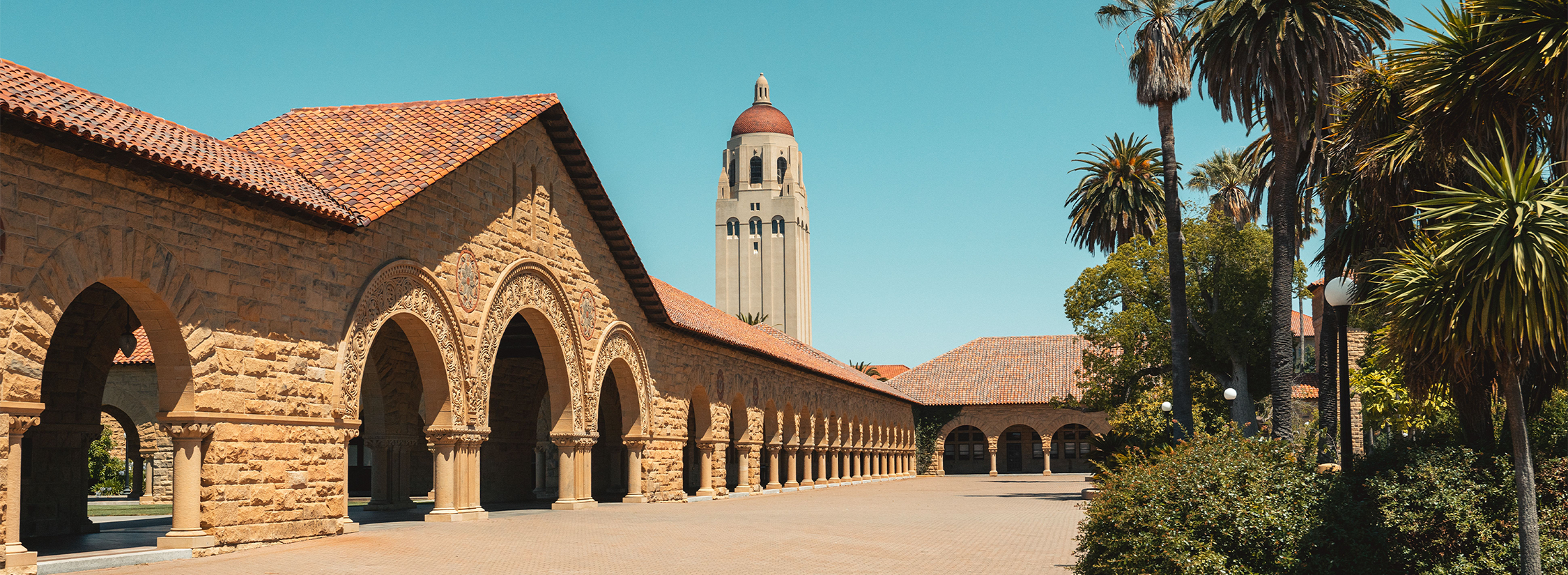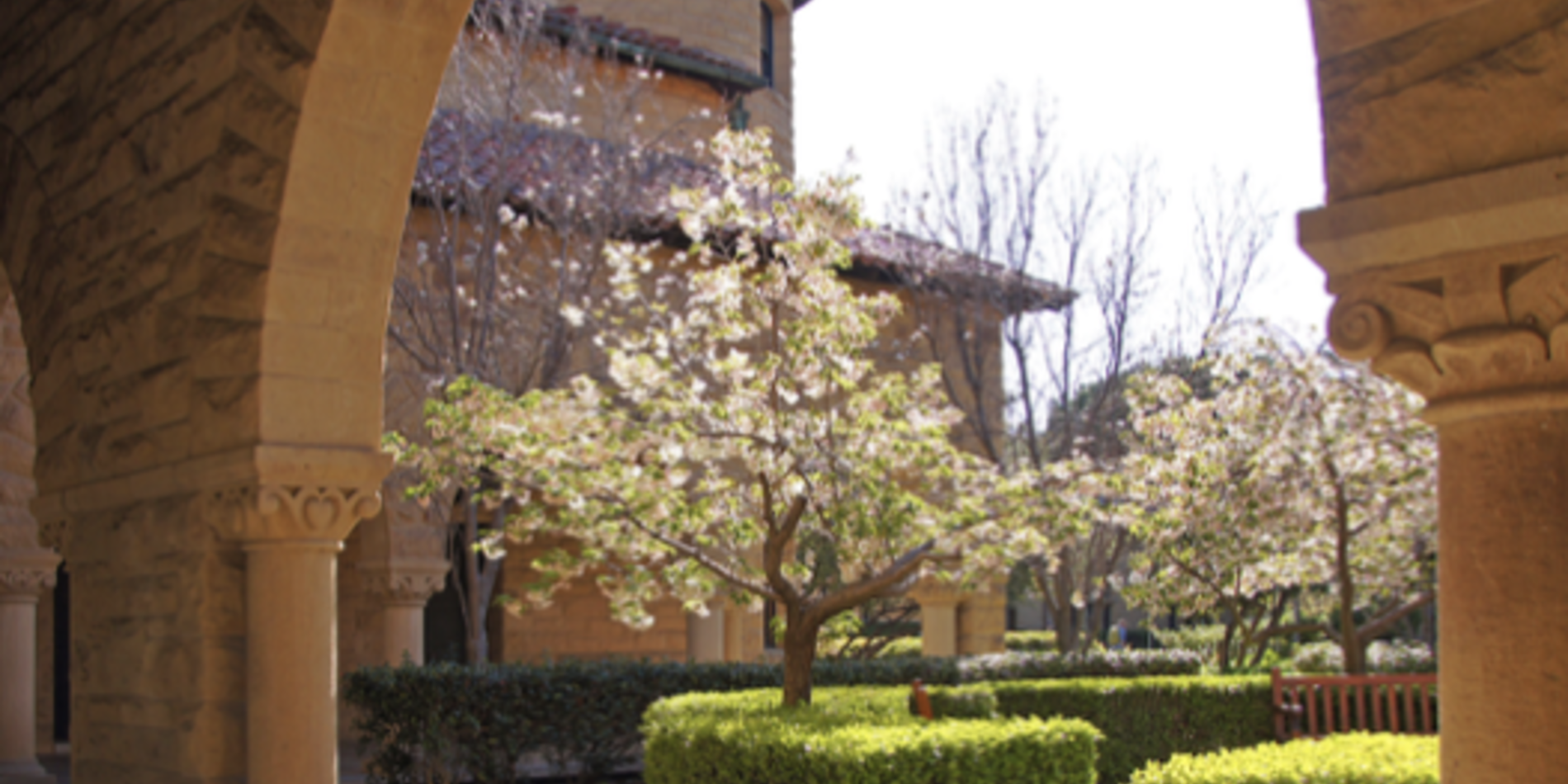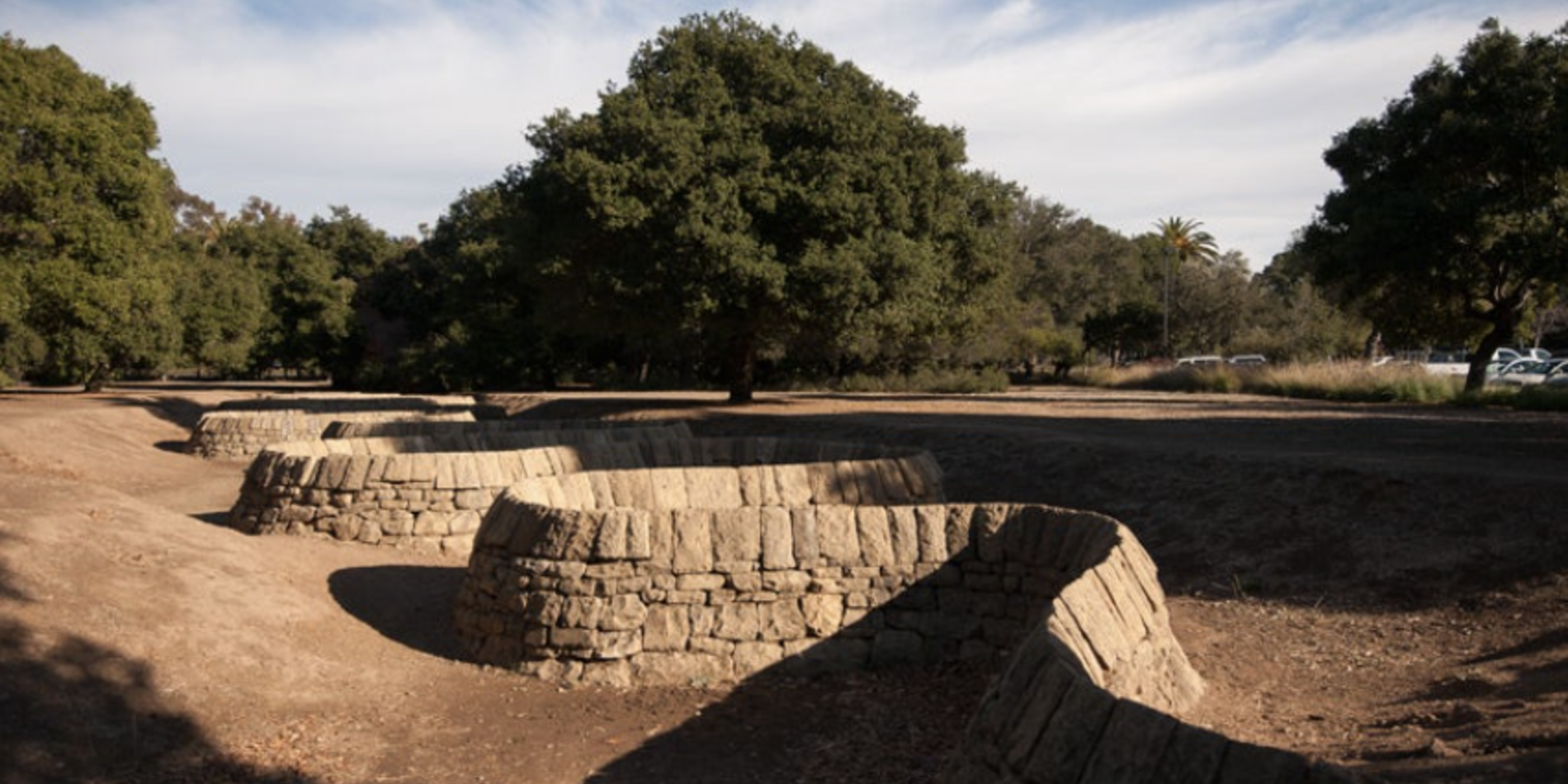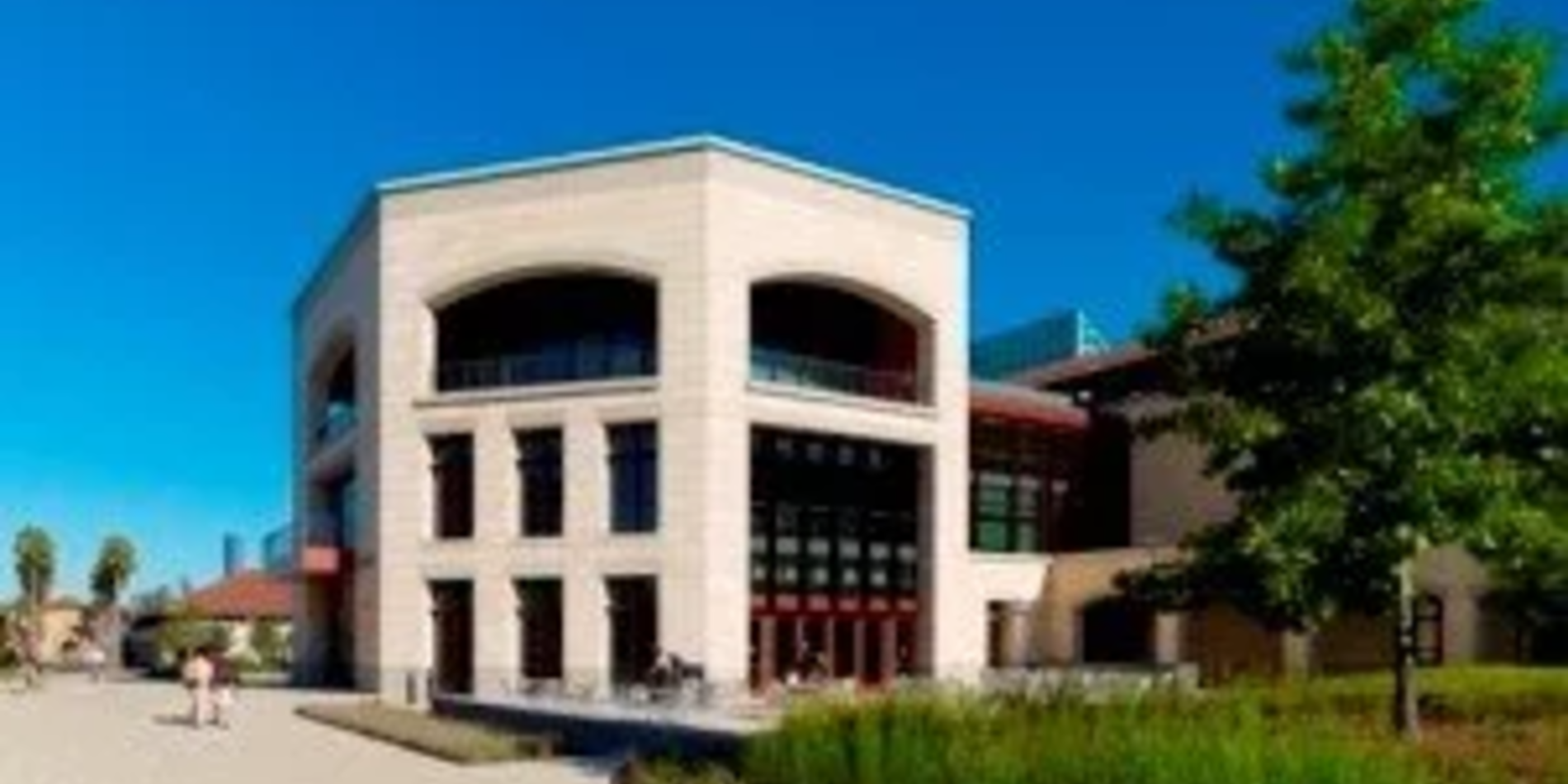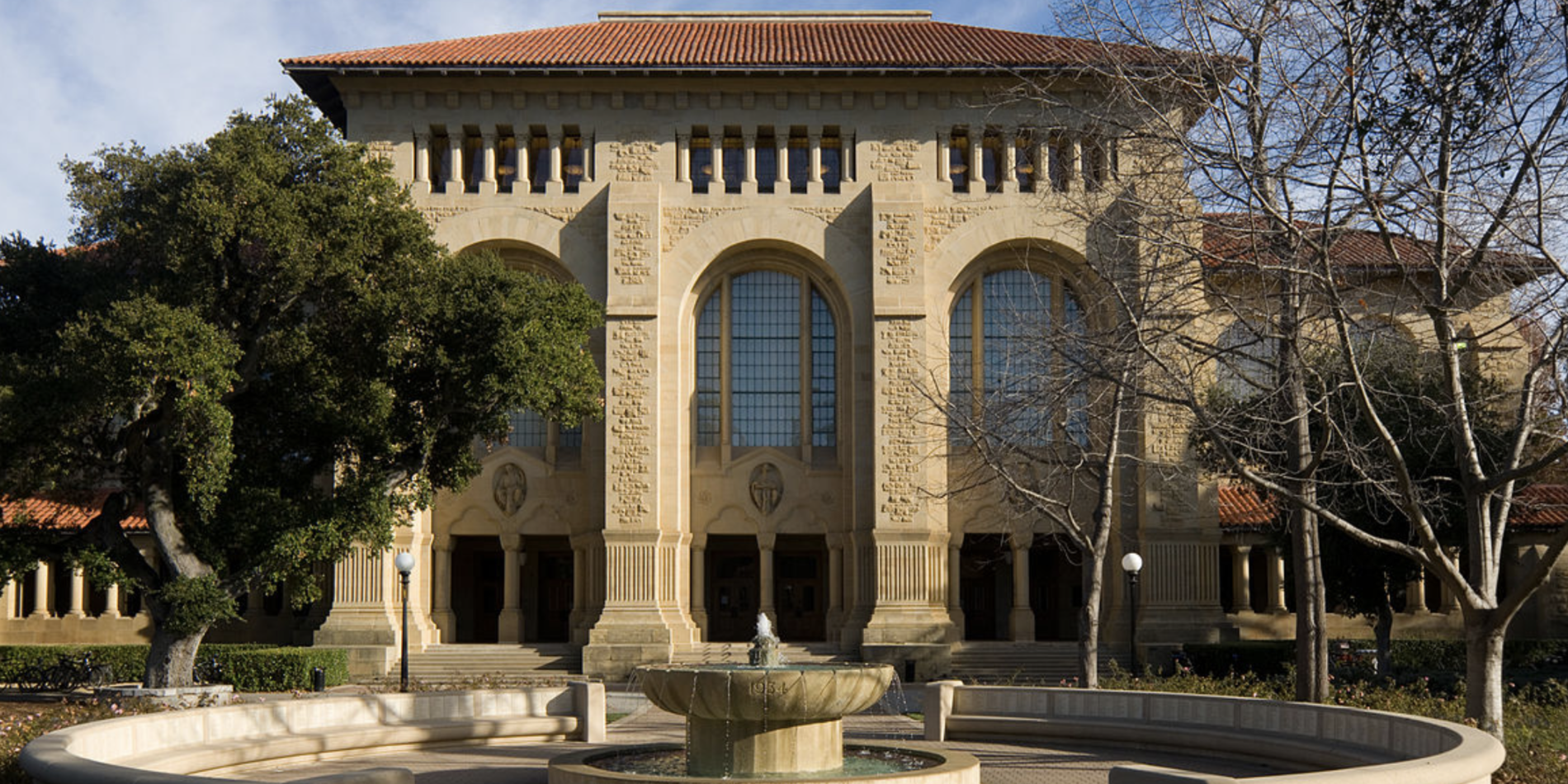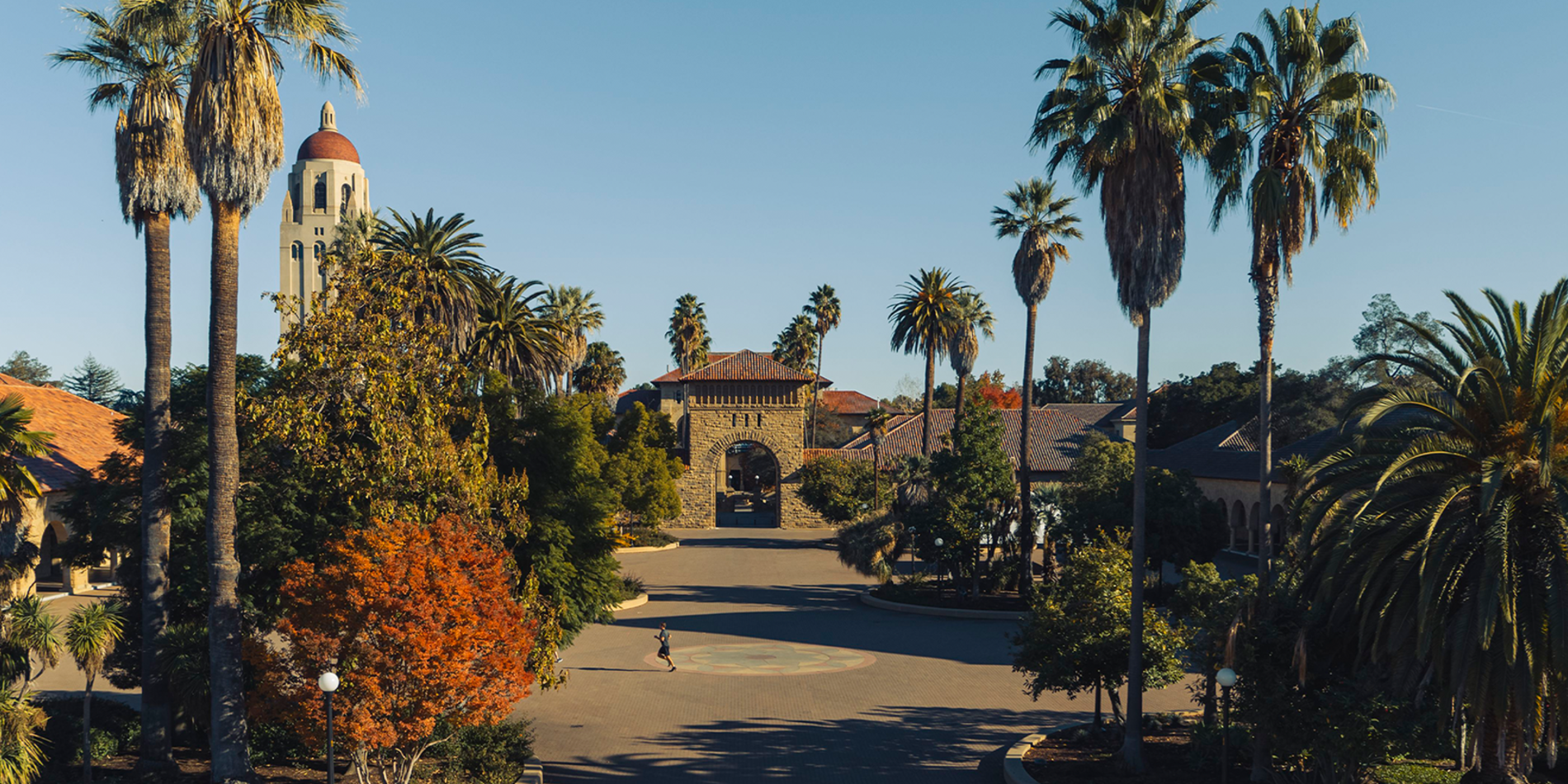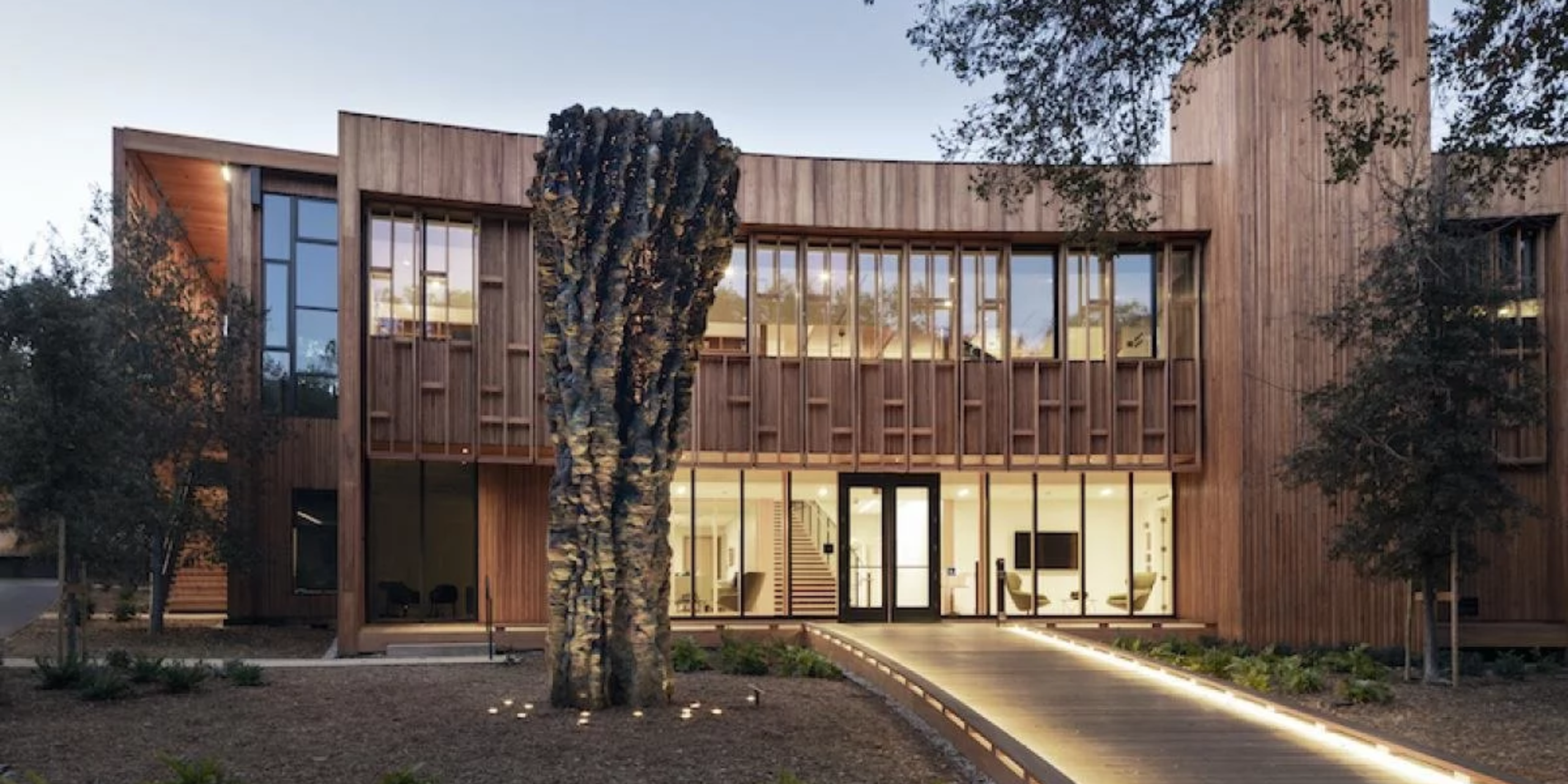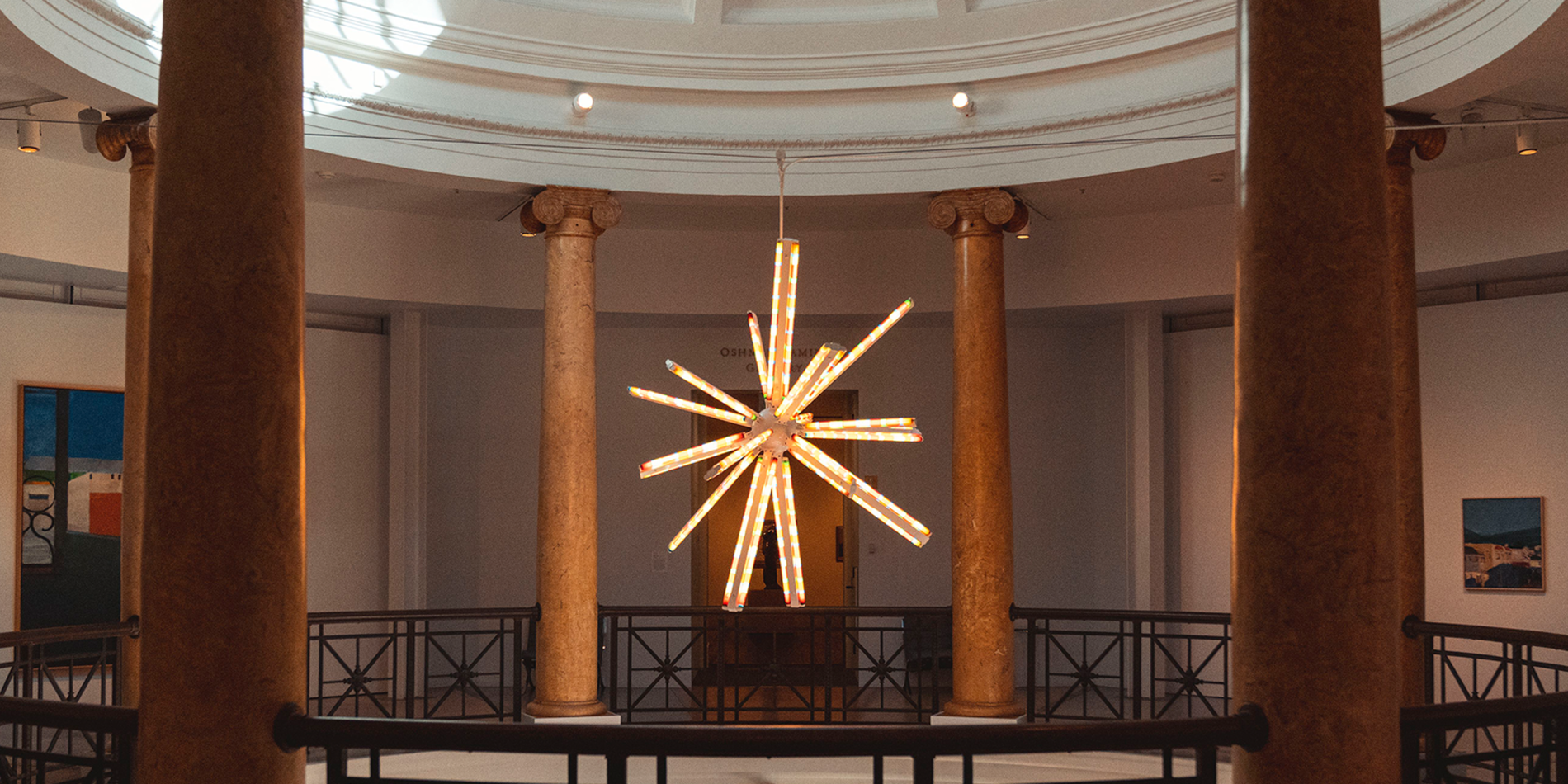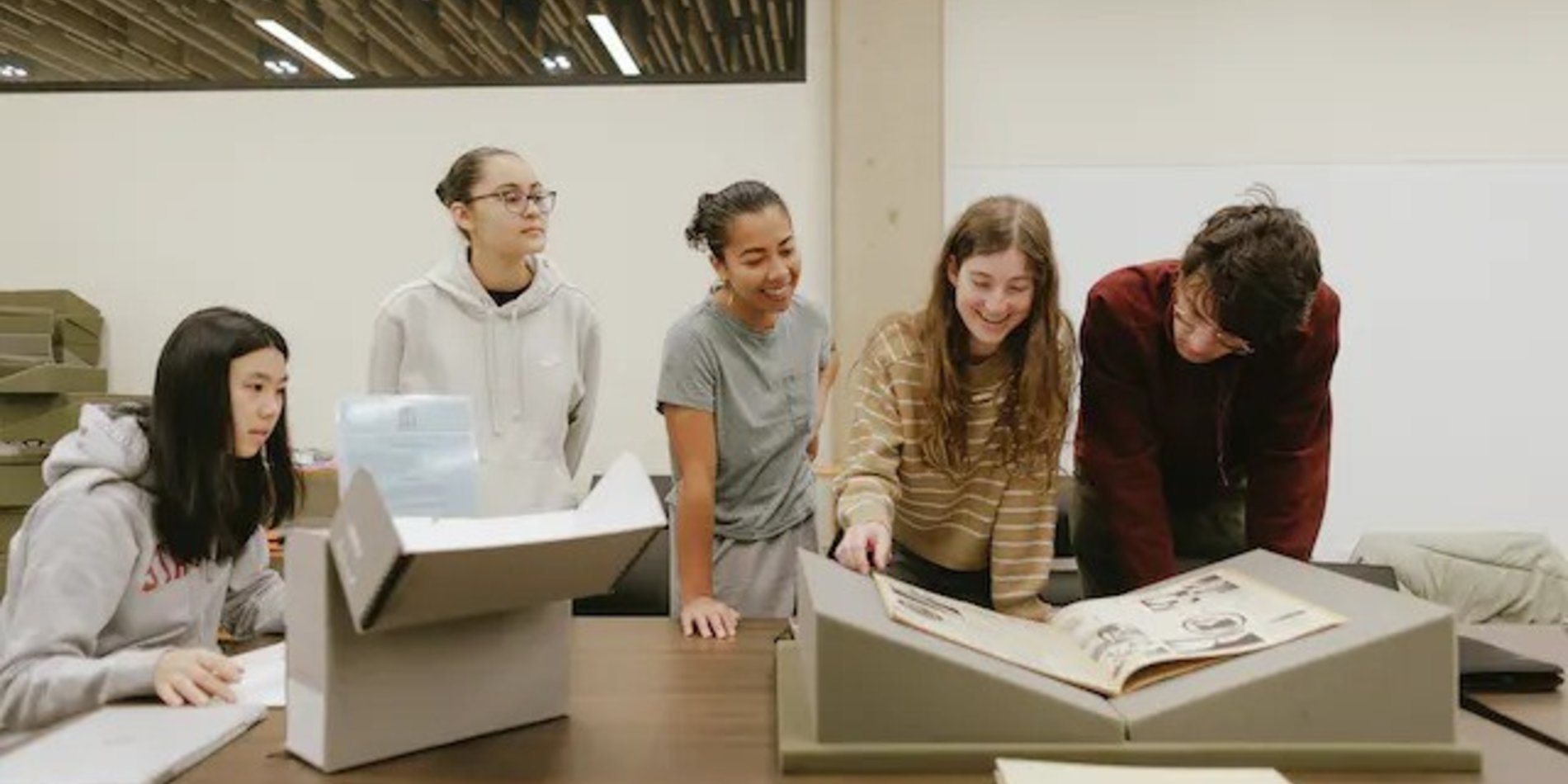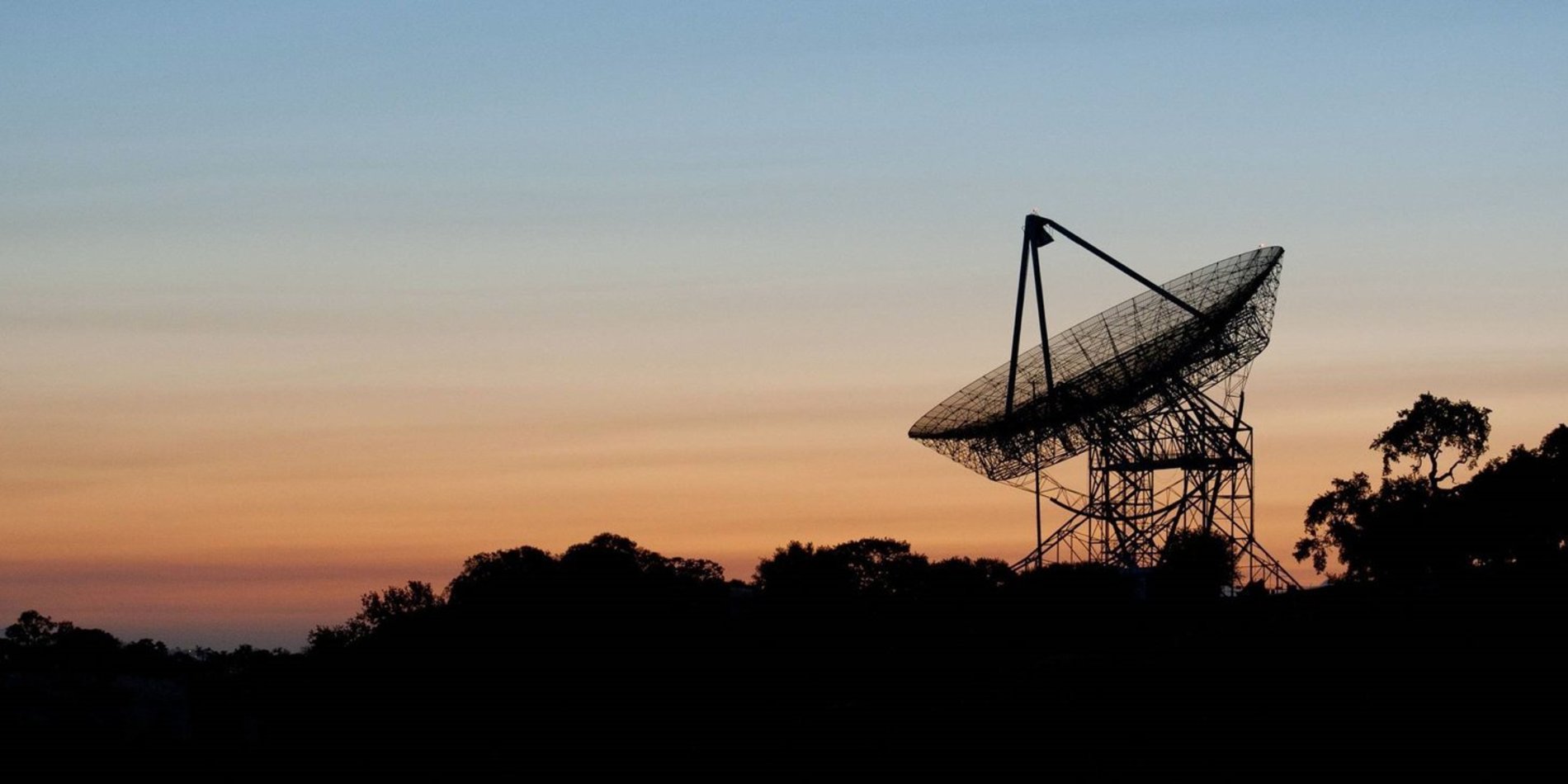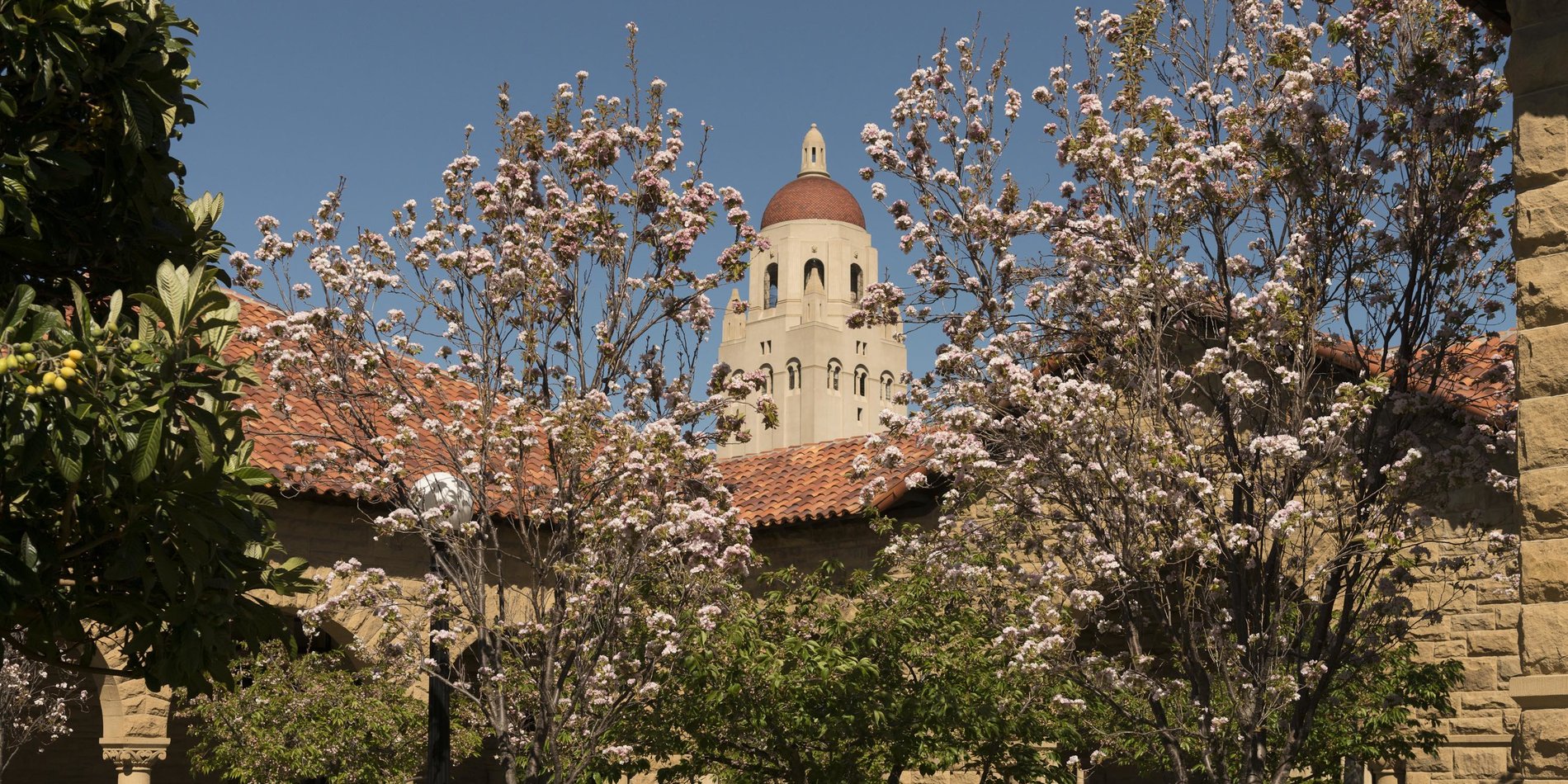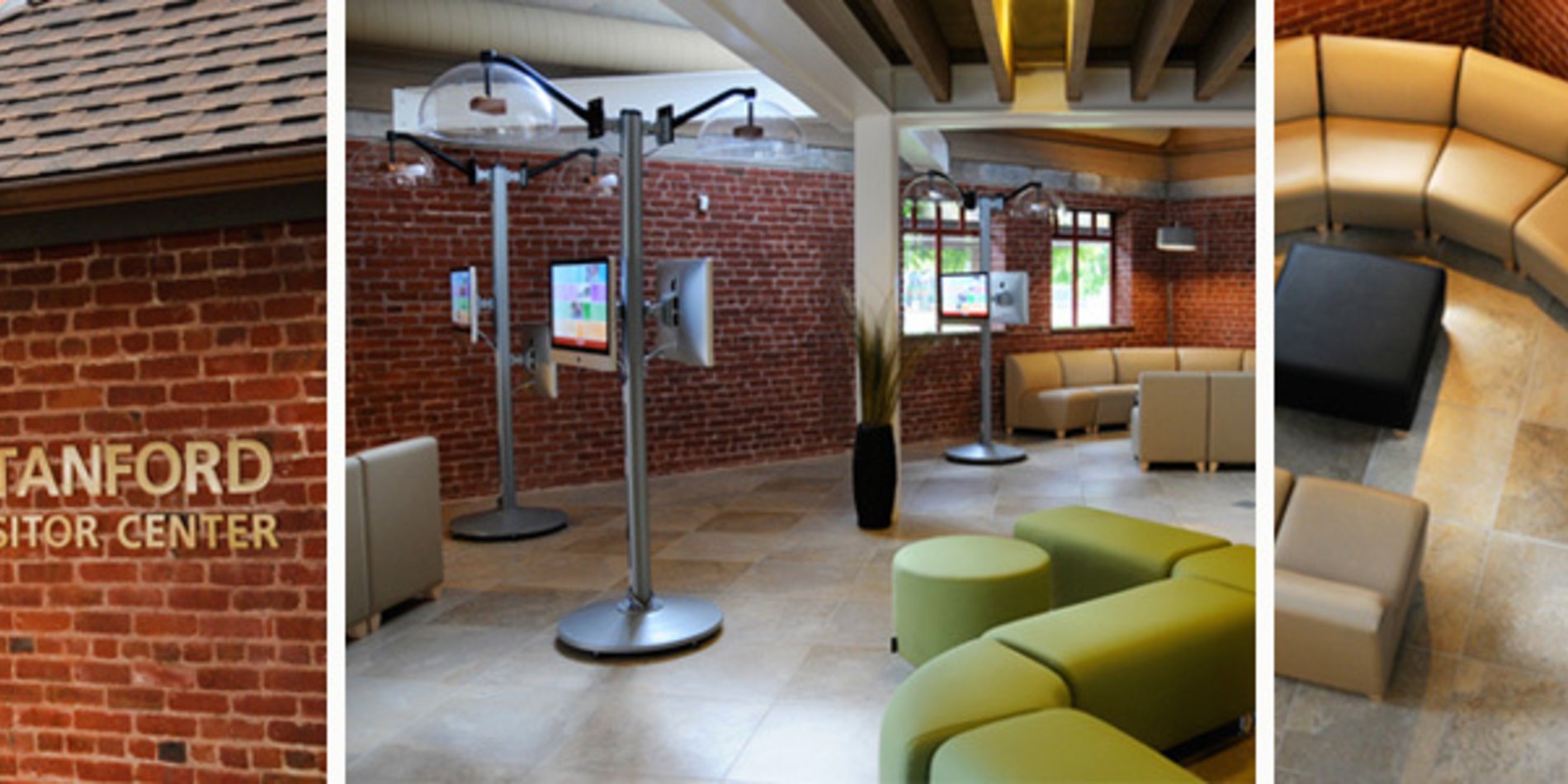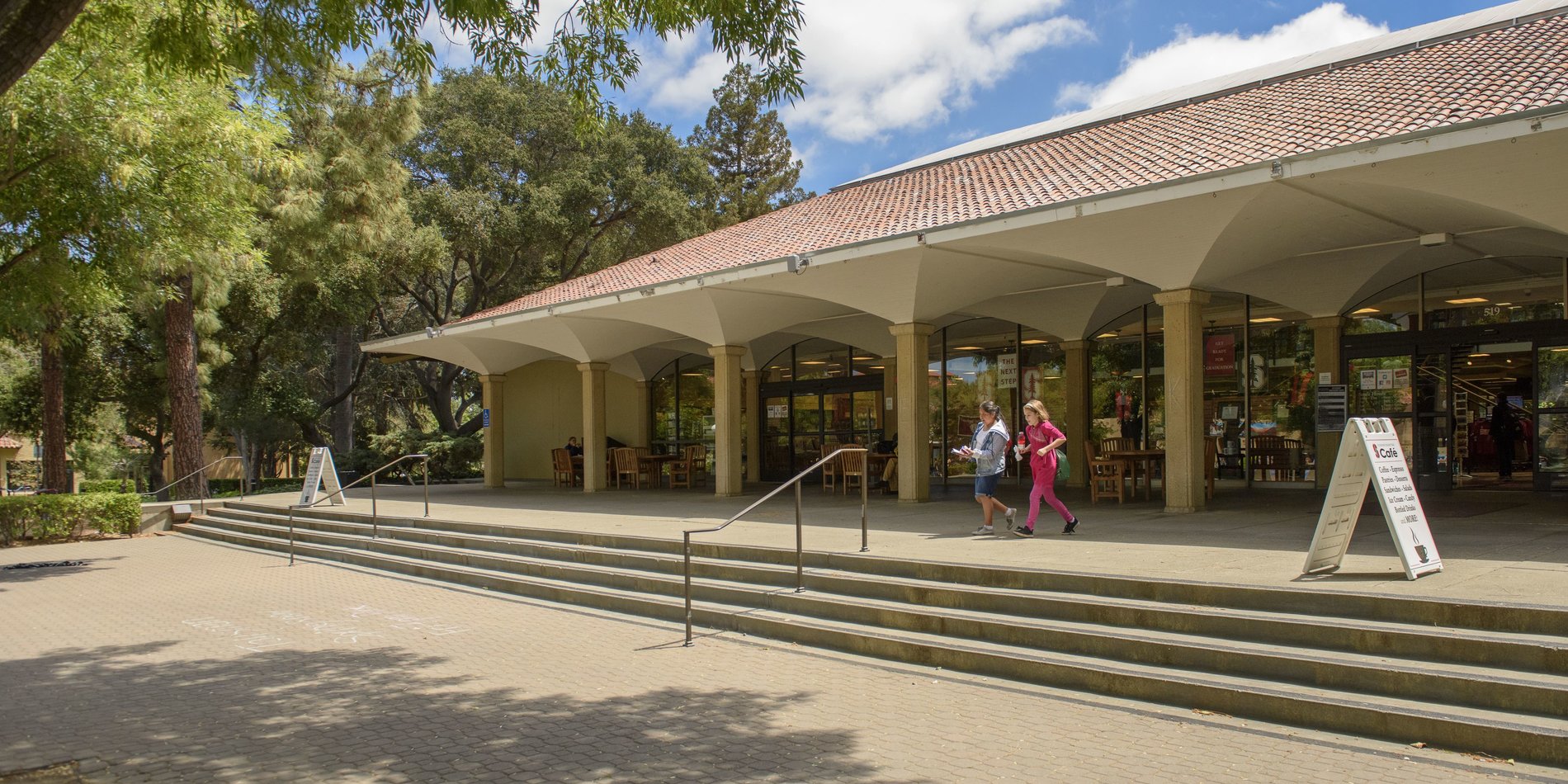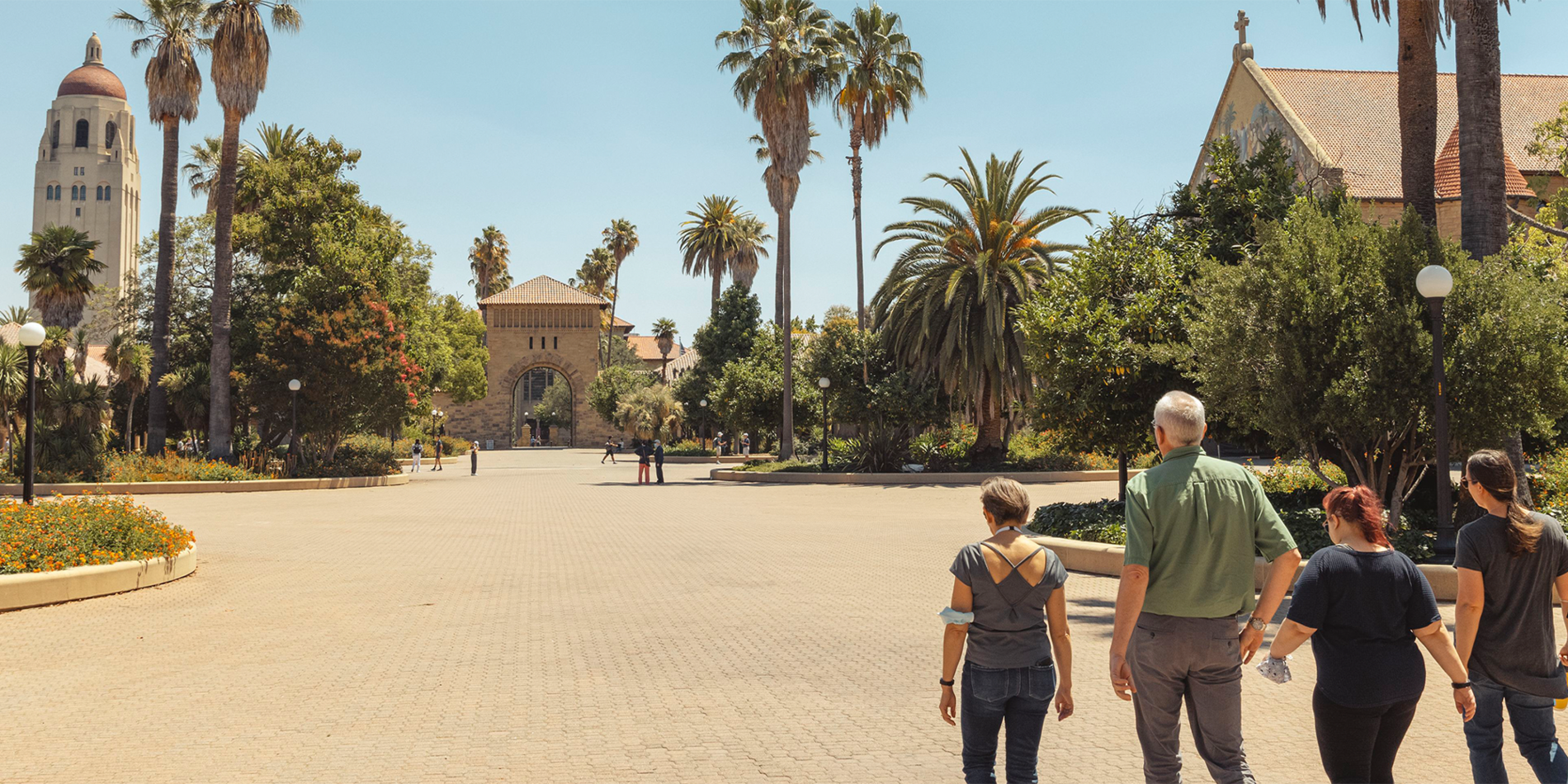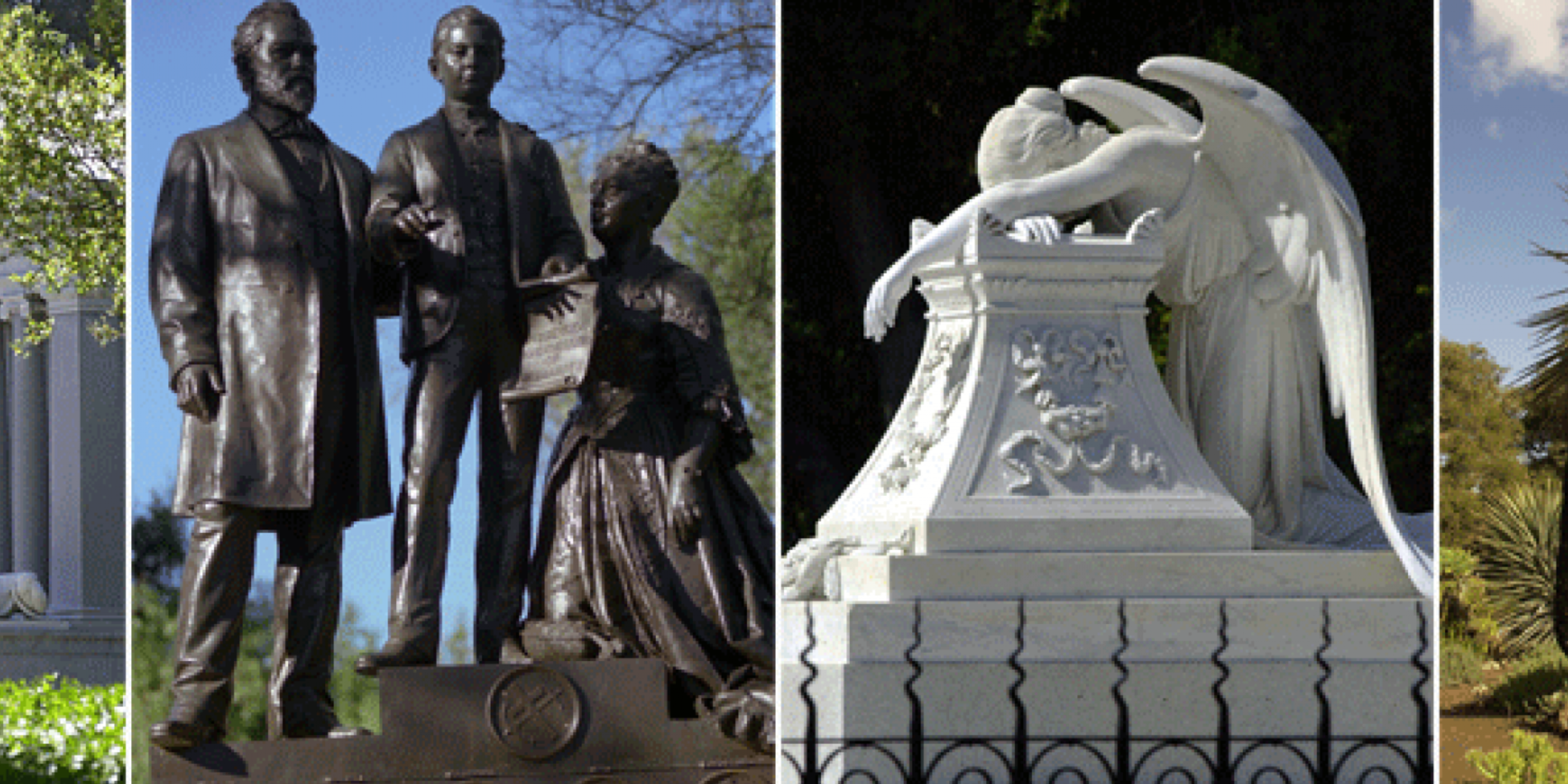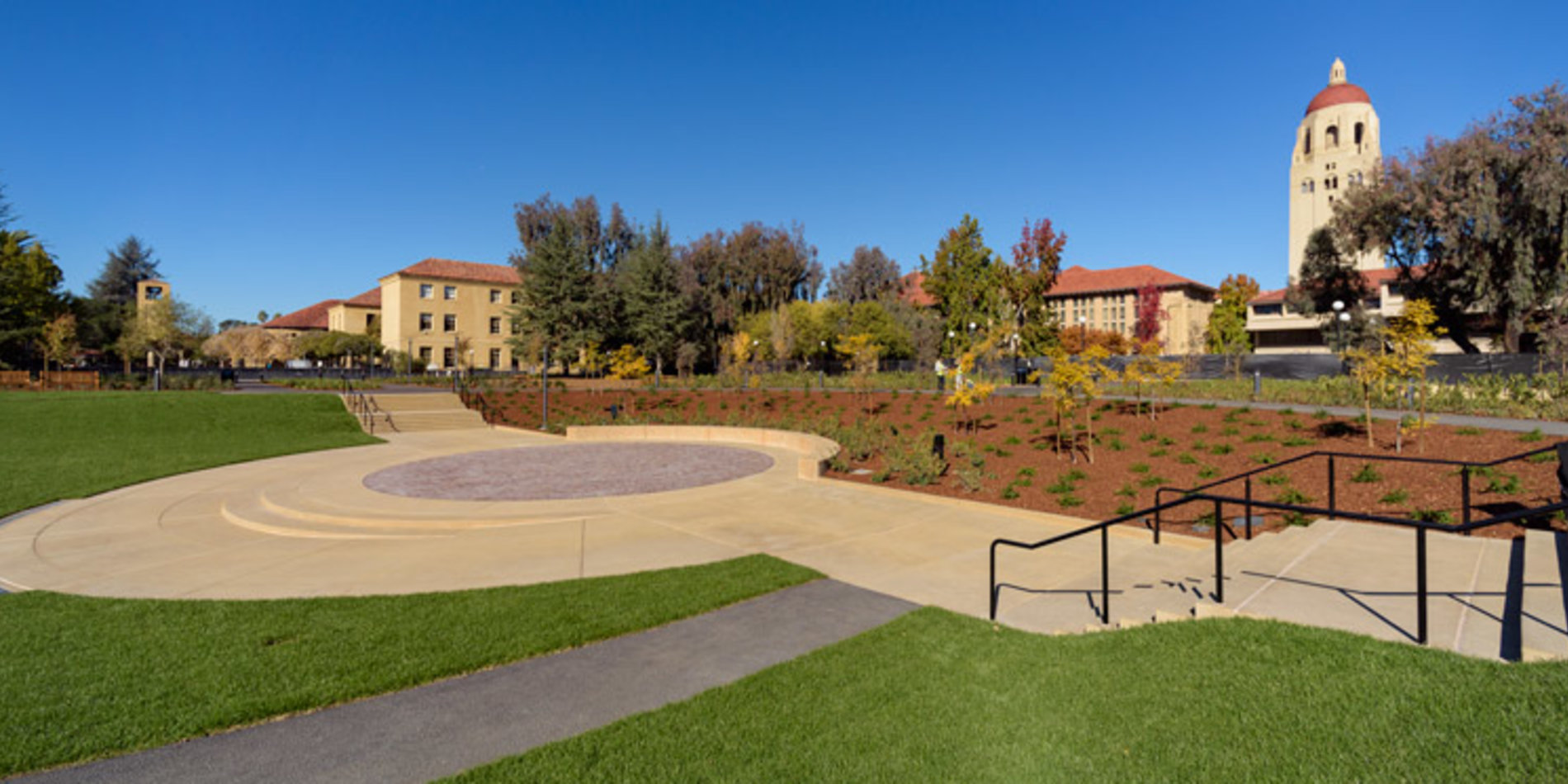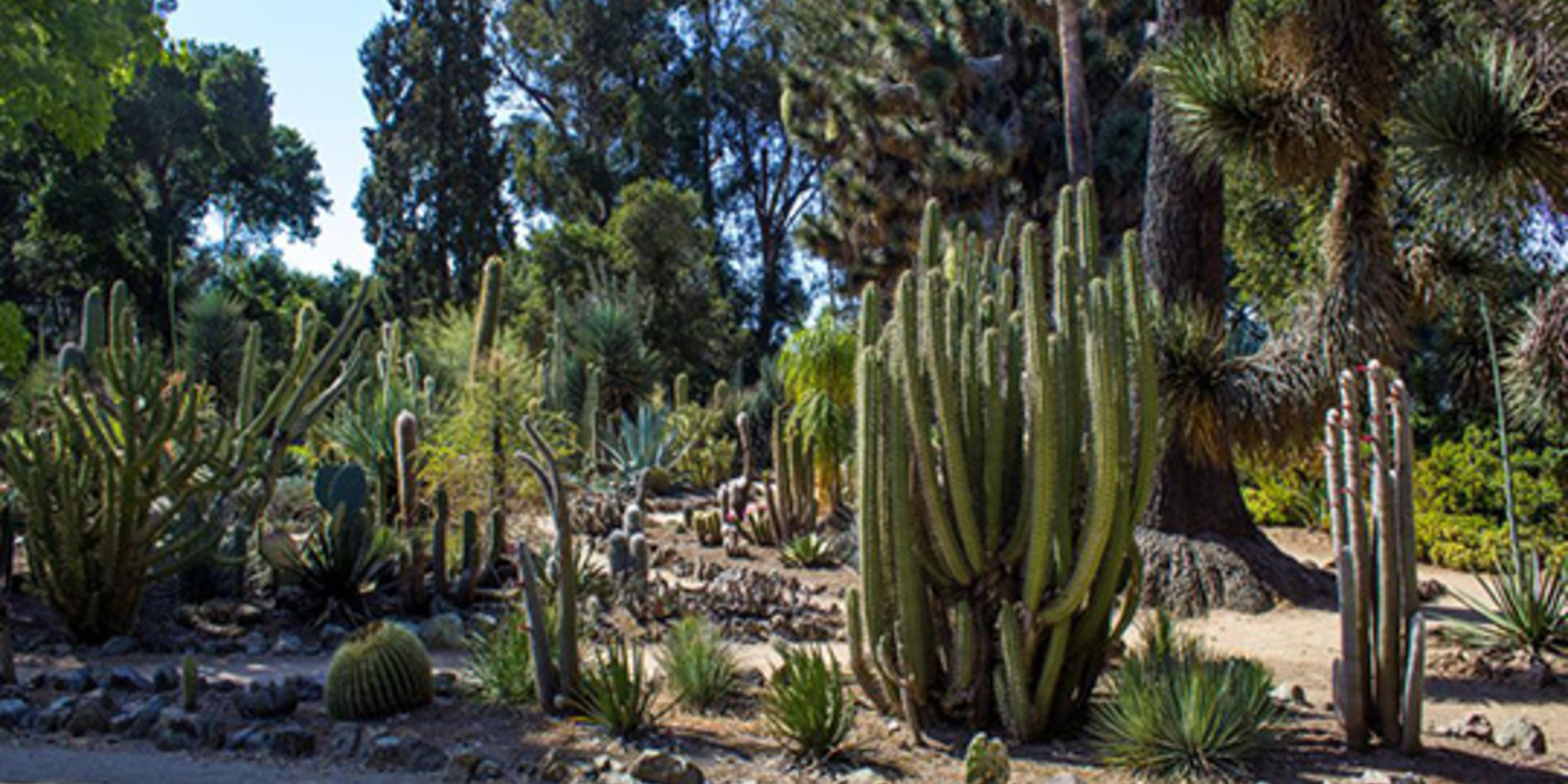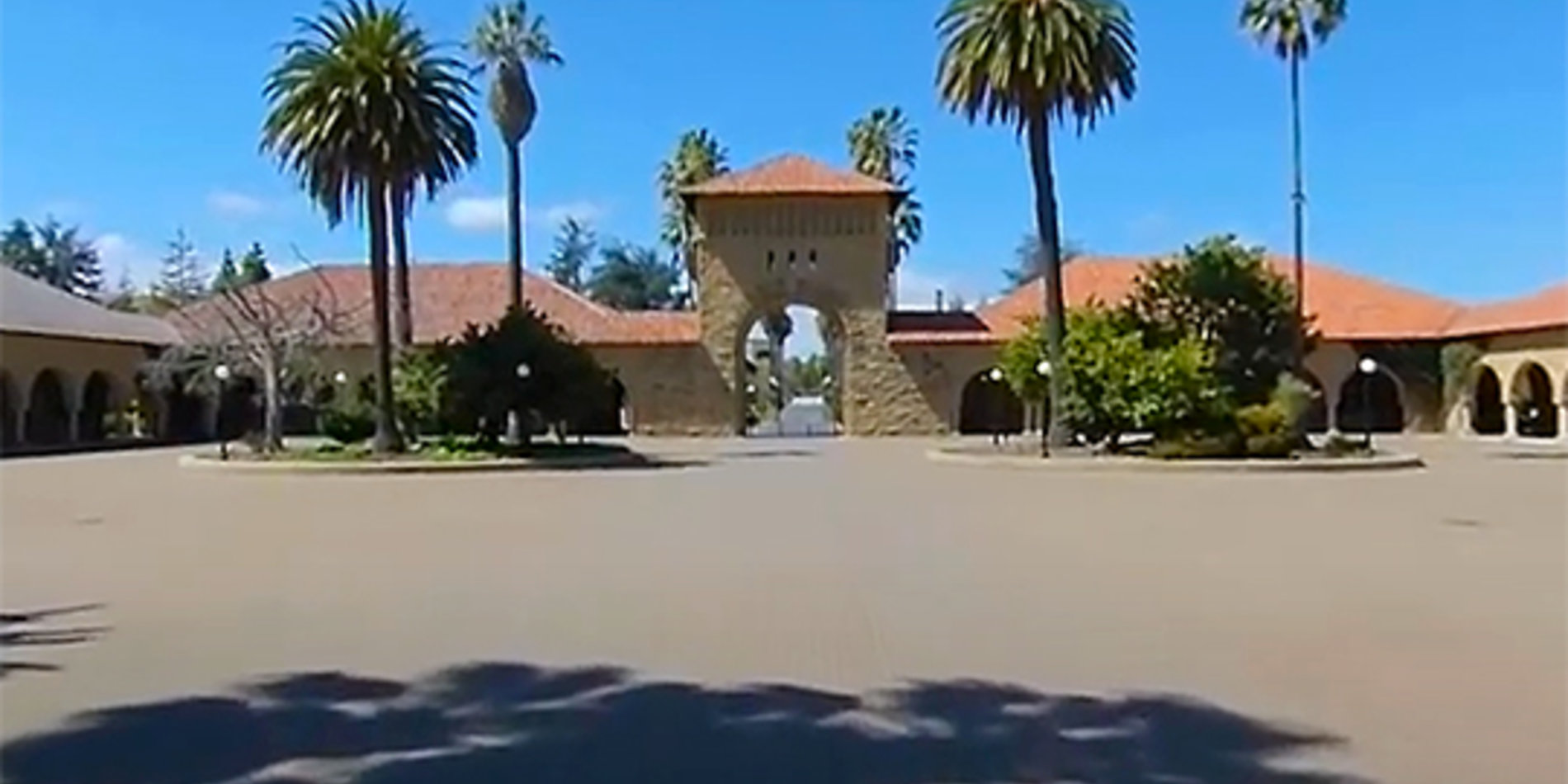Self-Guided Tours
Explore the Stanford campus in person with self-guided tours and limited docent-led tours, and online with virtual experiences. Links with an arrow indicate an external site.
Please note that the limited docent-led tours may have strict capacity limits and/or other entry criteria. Hours and access to some areas may be limited.
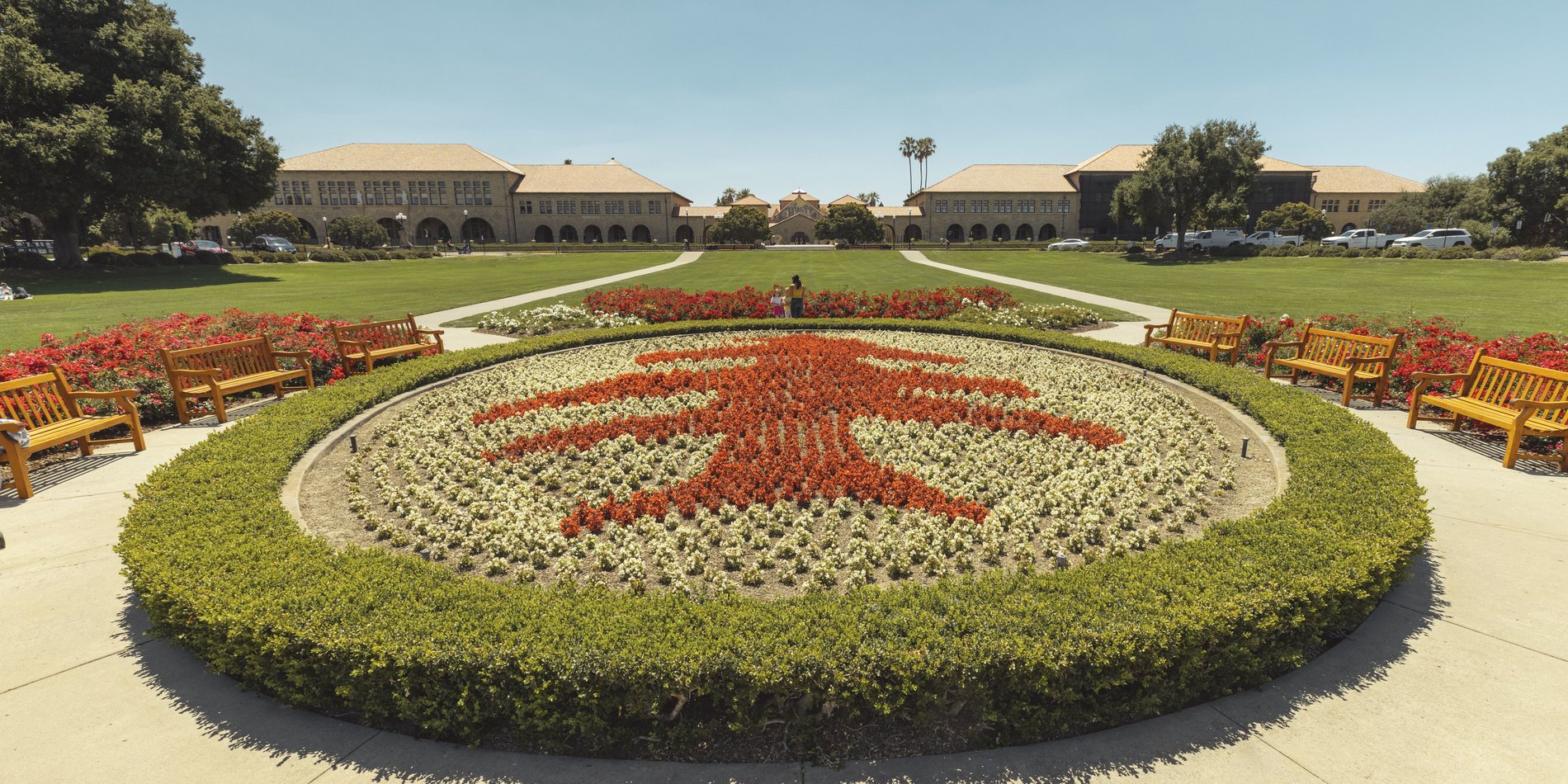
Self-Guided Tour Map - Stanford Campus
Shows Visitor Center, self-guided tour route, points of interest with descriptions, and photo locations. Also includes additional options not shown on the indicated route, such as the Arts District, Athletics District, and Campus Residences.
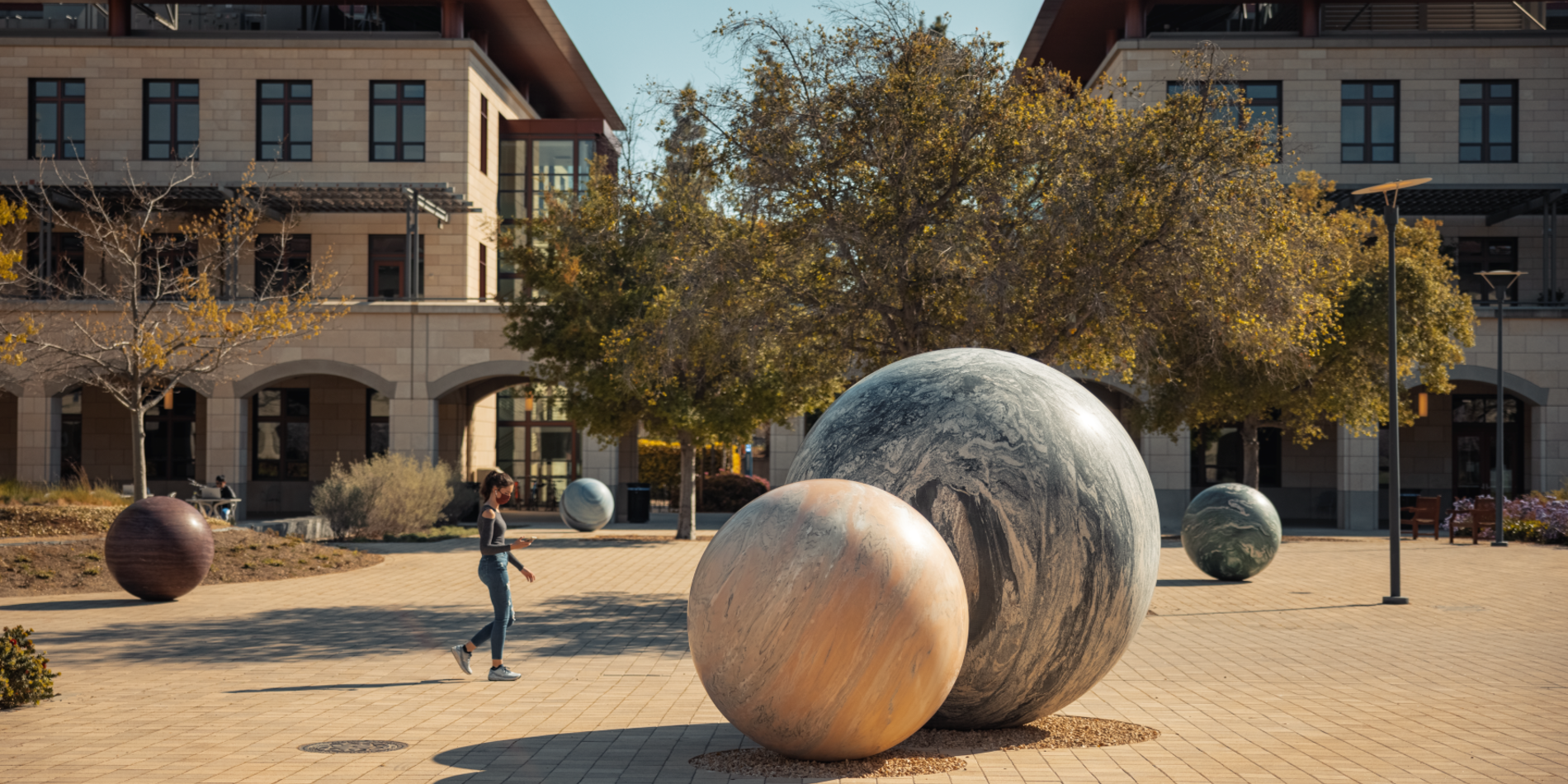
Stanford Public Art Tours on Stanford Mobile
Explore Stanford's expansive public art collection on campus or virtually with the newest mobile feature, Public Art Tours.
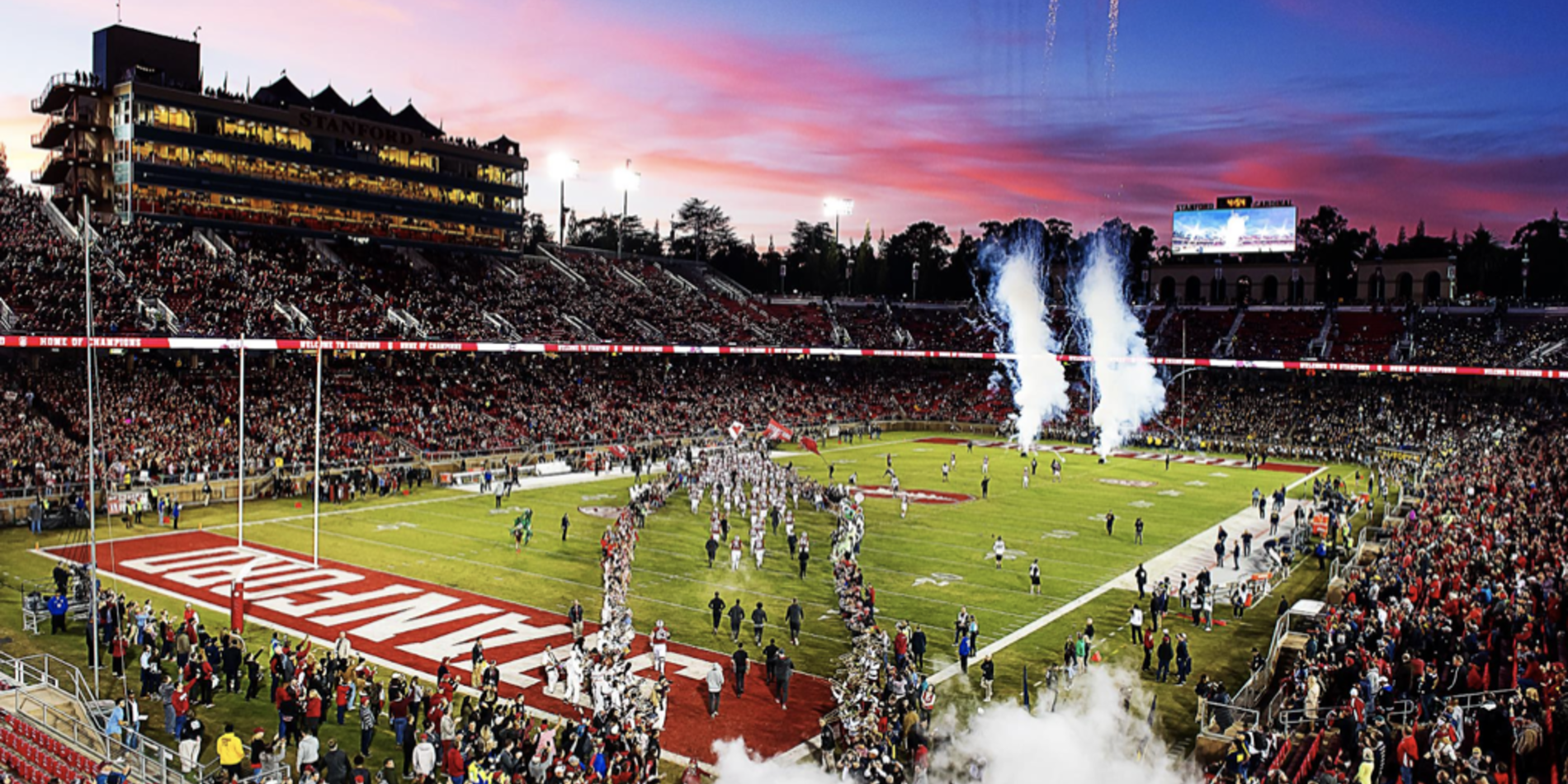
Stanford Athletics District
Self-guided tour of the Stanford Athletics District fields and facilities.
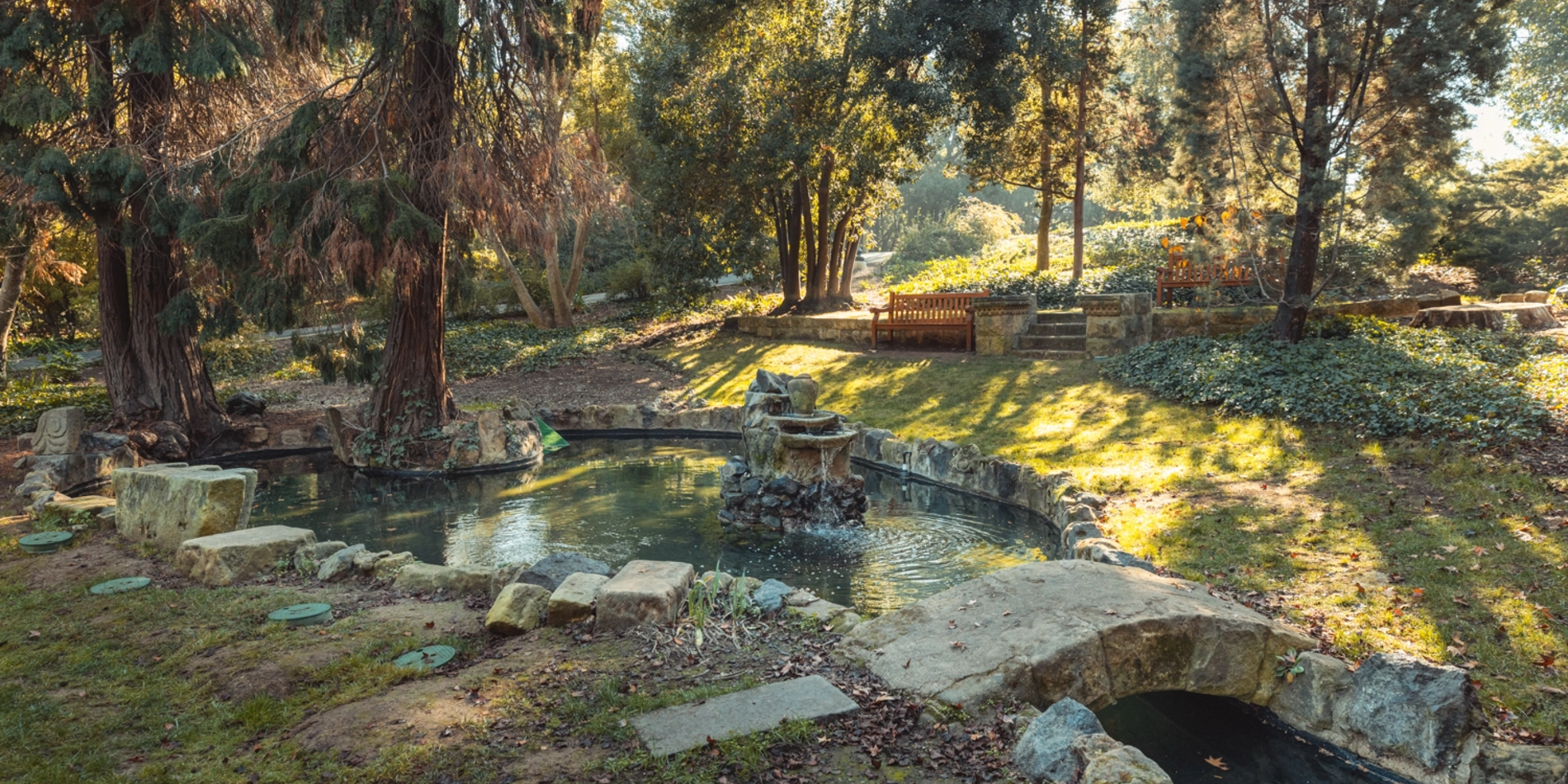
Curious objects around Stanford campus
Witness to more than 130 years of history, the Stanford campus is full of interesting – and in some cases, mysterious – items, dispersed throughout the grounds. With abundant help from the Stanford community, Stanford News highlights a few.
Please note: some objects and locations may not be publicly accessible
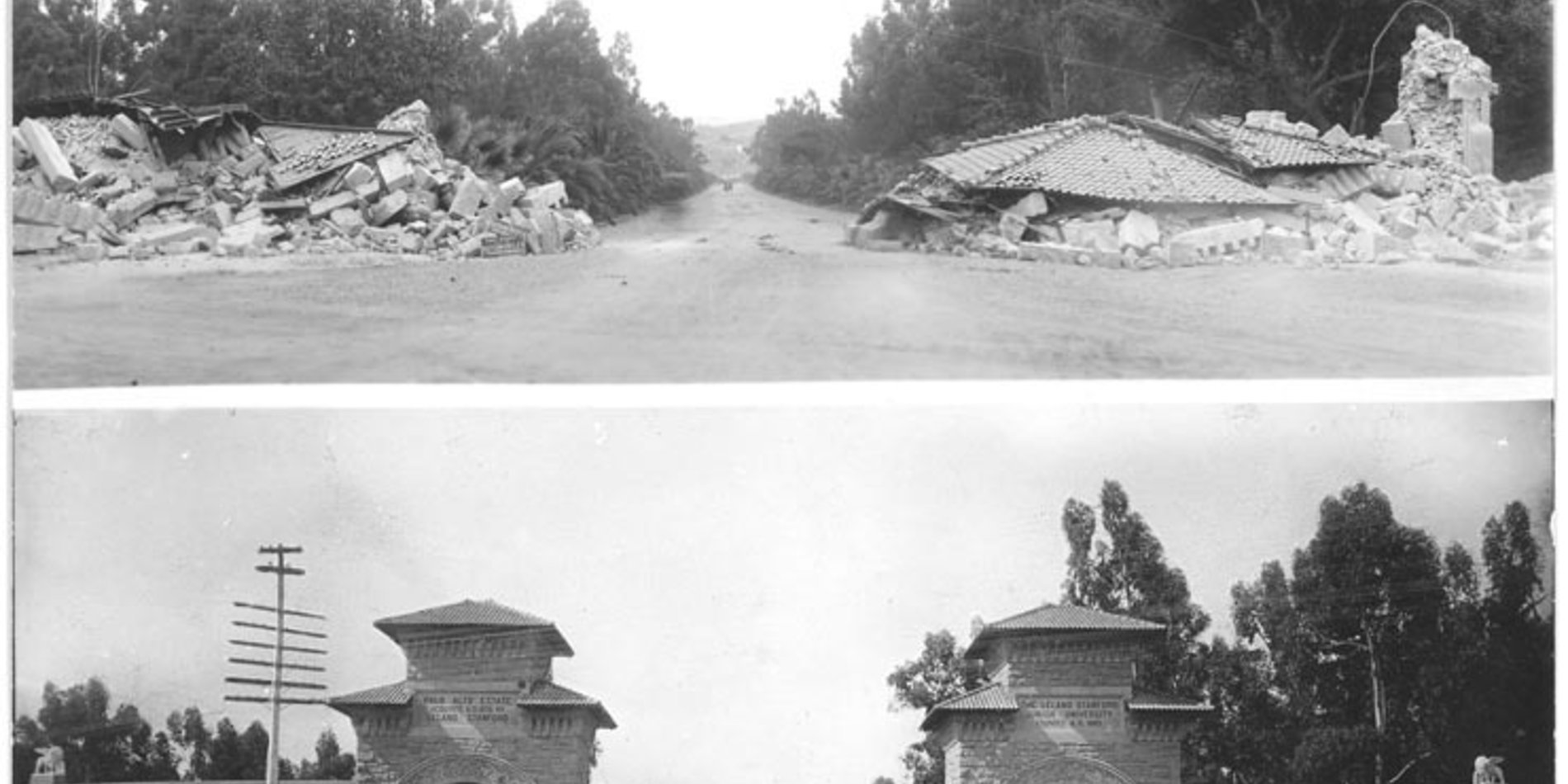
Stanford and the 1906 Earthquake Self-Guided Walking Tour
Amidst the physical destruction to the Stanford campus from the 1906 earthquake rose the resolve of the young university to rebuild. Though far from the total “Destruction of Great Stanford University” that was reported in the newspapers of the day, Stanford's buildings did suffer tremendous damage. While most buildings of the inner Quad survived, Memorial Church was almost completed destroyed as were the newly built Library and Gymnasium. See the online Quake '06 Centennial Walking Tour, or download the pdf map below.
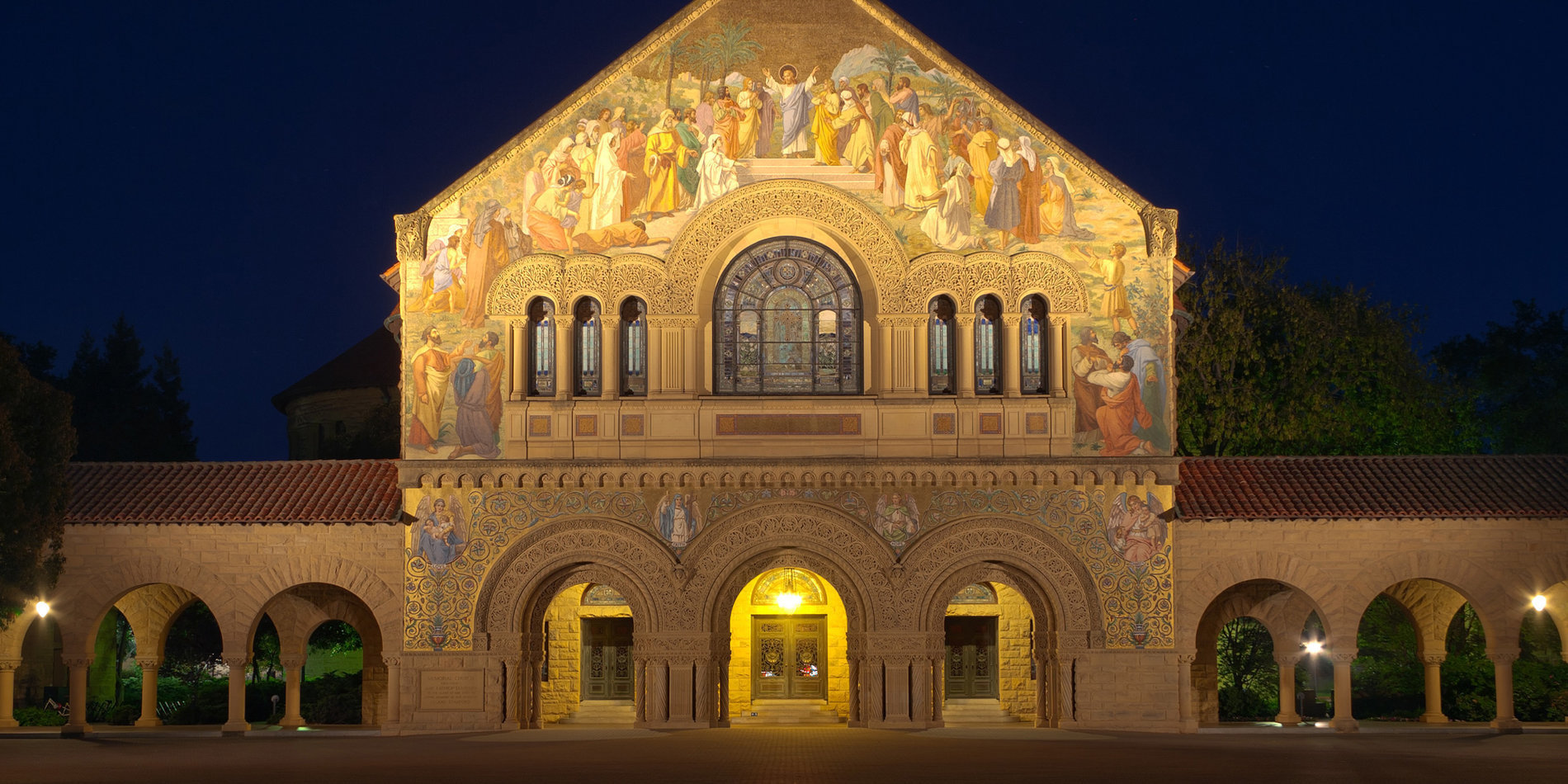
Memorial Church
Stone carvings, mosaics, and stained glass make Stanford Memorial Church the University’s architectural crown jewel. It was one of the earliest, and is still among the most prominent, interdenominational churches in the West.
Memorial Church will be open to families for self-guided tours on Friday, February 23, 2024, from 9:00 a.m. to 4:00 p.m. and Saturday, February 24, 2024, from 9:00 a.m. to 1:00 p.m.
Limited Docent-Led Tour
A limited docent-led tour will be offered on a first-come, first-served basis on Friday, February 23, 2024, at 11:00 a.m.
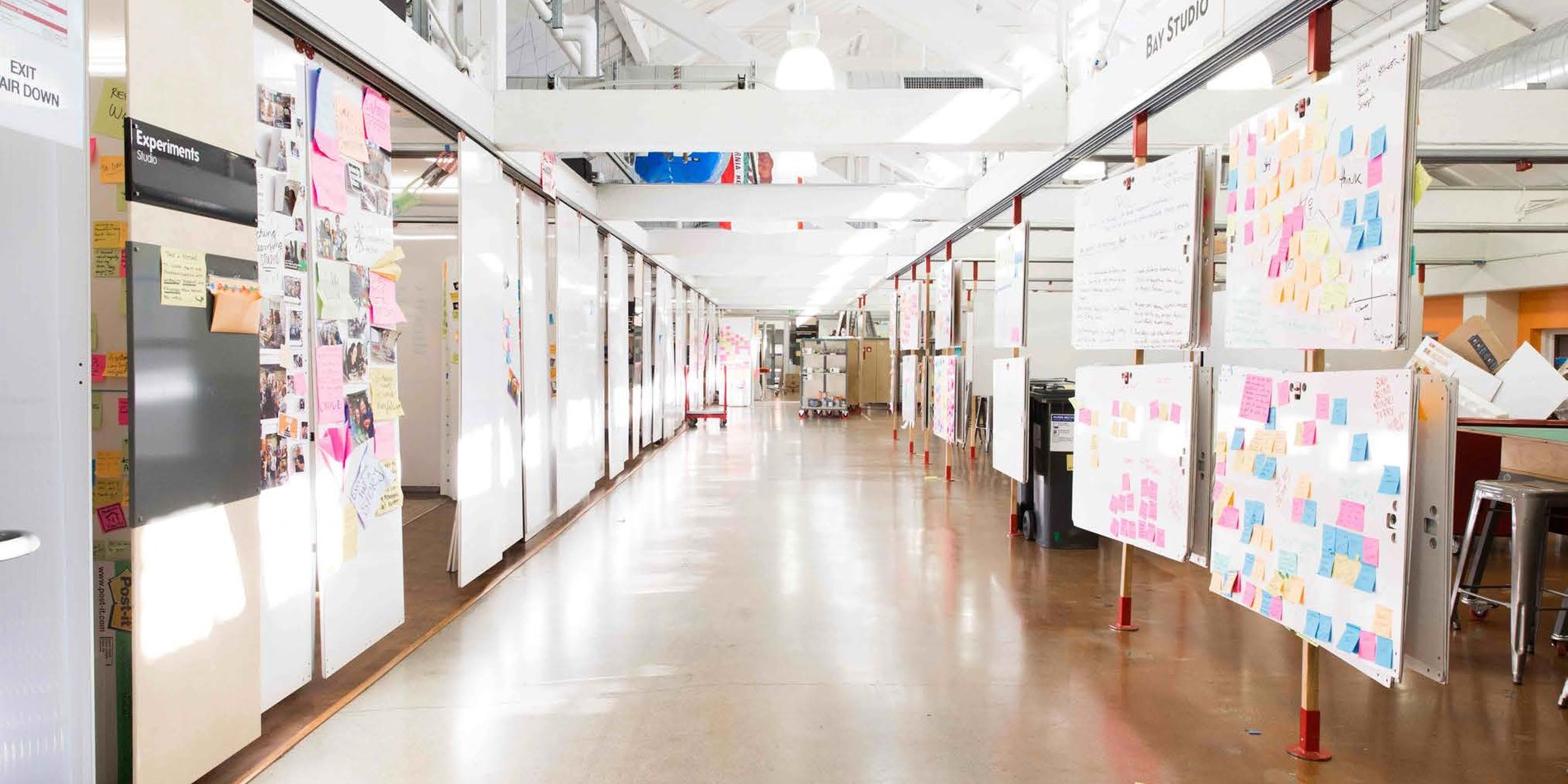
d.school
The d.school (Hasso Plattner Institute of Design) wants to co-design our tour with you! We want to know what you want to know. Come by for an interactive prototype of our new tours program, rebooted since the pandemic shut it down. We'll run you through a bit of history, our new programs, and show you what we love about the school - would love to see you there.
Limited Docent-Led Tours
Saturday, February 24, 1:00 p.m. - 1:45 p.m. and 2 p.m. - 2:45 p.m.
The d.school is located in Building 550 on Panama Mall. Please enter through either of the doors marked with red stars on this map and join us in the Atrium. Our capacity is 45 people per tour. The first 45 people to check in will get a sticker. Please arrive around 5 minutes early.
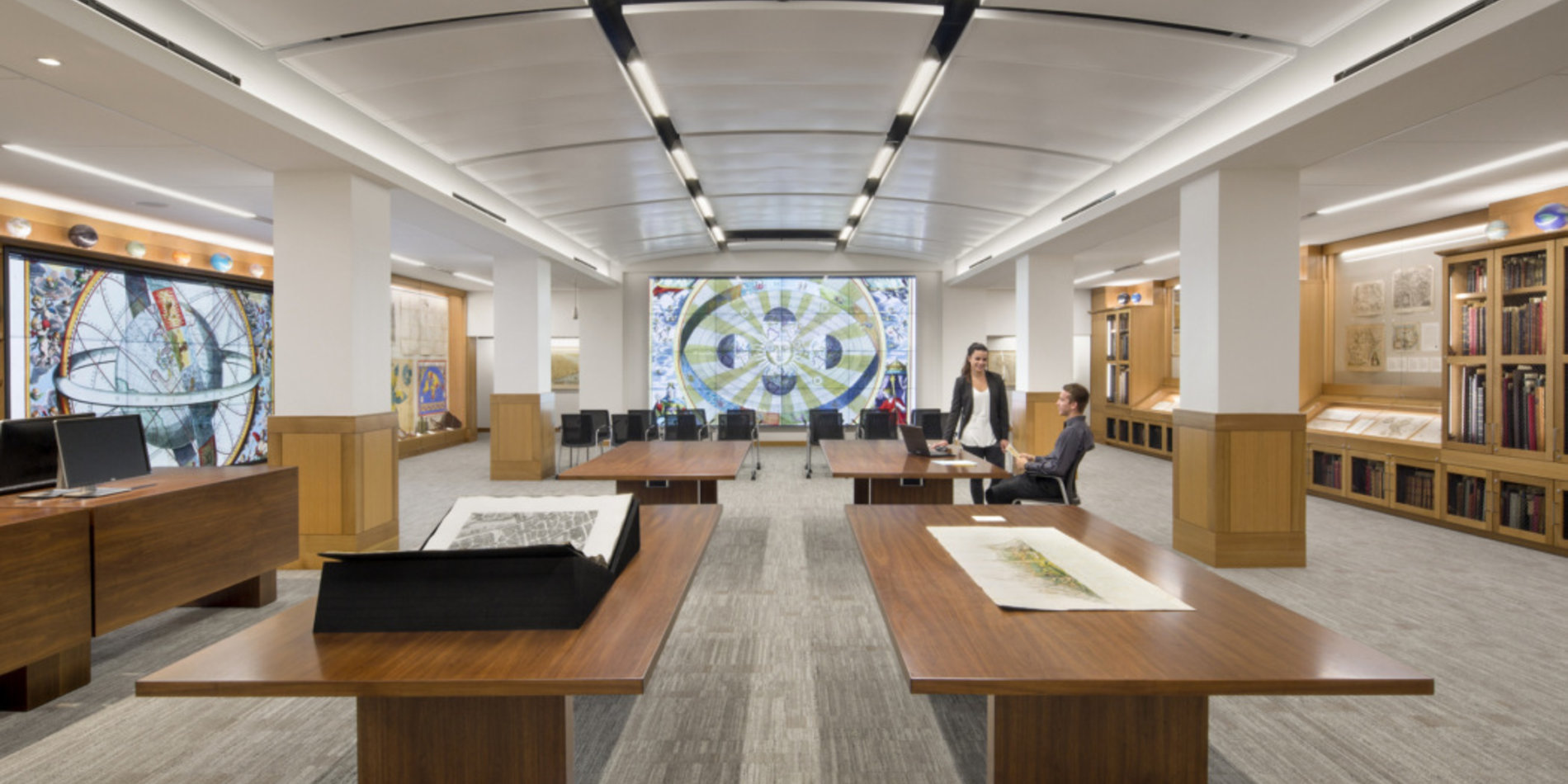
David Rumsey Map Center at Green Library
The David Rumsey Map Center, opened in April 2016, combines world-class collections of historic and rare maps and atlases with modern digital cartographic technologies. Tour the Center with a curator and view the historic architecture of the Bing Wing of Green Library.
Limited Docent-Led Tour
A limited docent-led tour will be offered on a first-come, first-served basis on Friday, February 23, 2024, at 11:00 a.m. to 11:30 a.m. Tour capacity: 30 people. Meet at the Bing Wing entrance of Green Library by 11 am, entrance facing Memorial Church (Green Library, 459 Lasuen Mall)
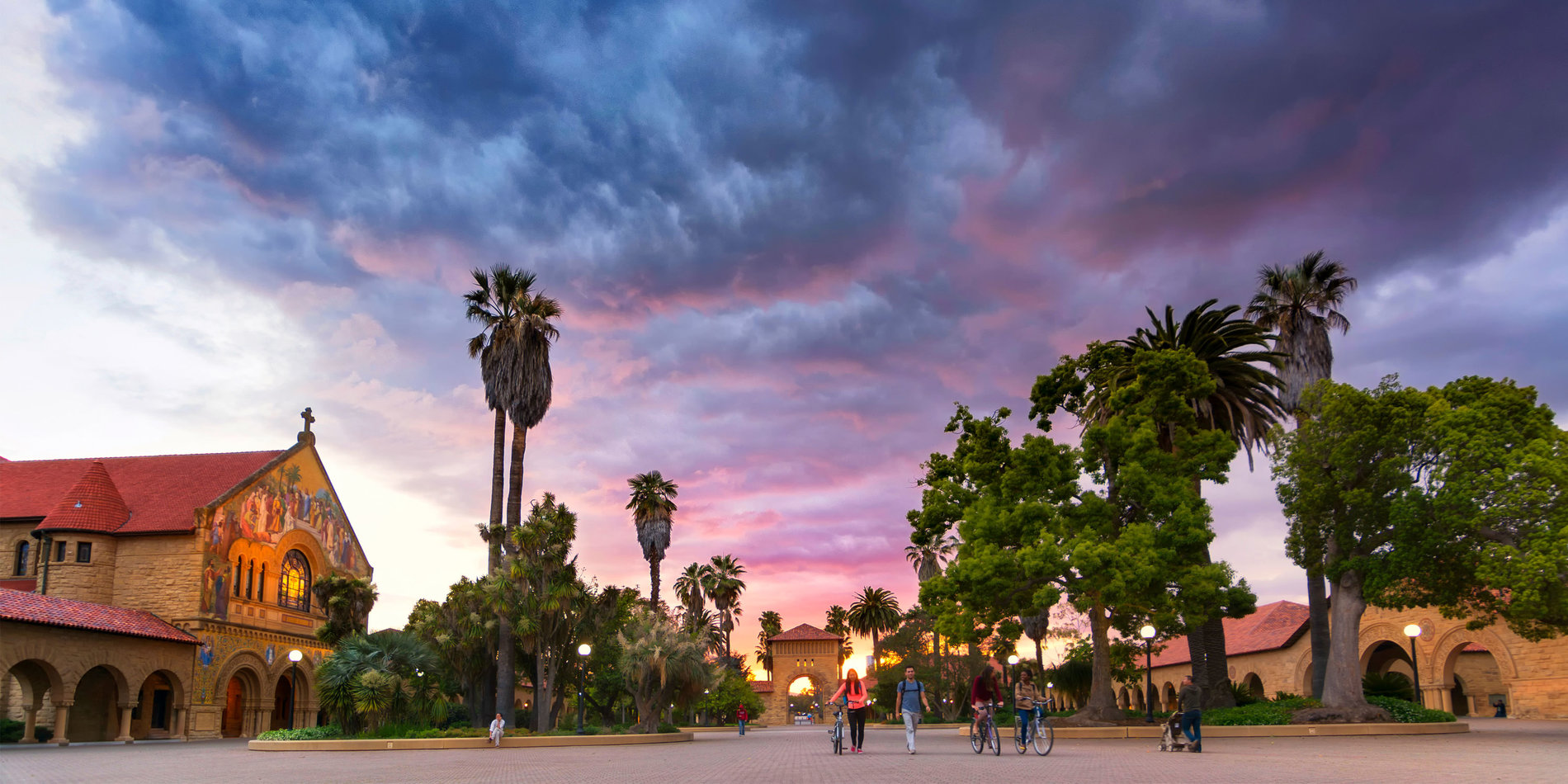
Campus Walks
Enjoy the campus and its surrounding area with a number of themed walks or trails on the Community Engagement website.
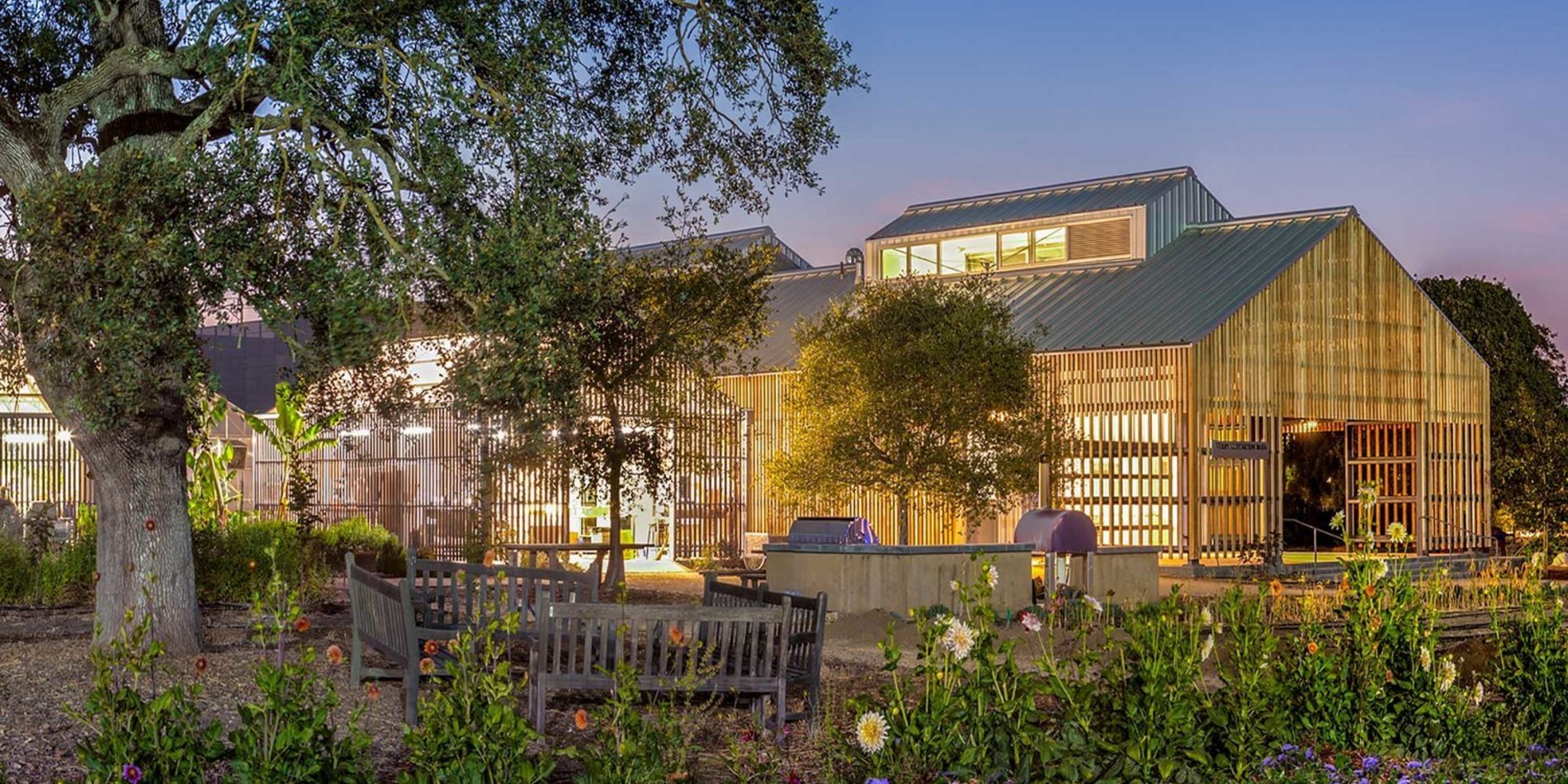
O'Donohue Family Stanford Educational Farm
The O'Donohue Family Stanford Educational Farm is Stanford's living laboratory for hands-on learning in sustainable agriculture. If you would like to experience the farm, we encourage you to visit during our general operating hours on Mondays through Fridays from 8:00 a.m. - 6:00 p.m. and Saturdays from 8:00 a.m. - 5:00 p.m.
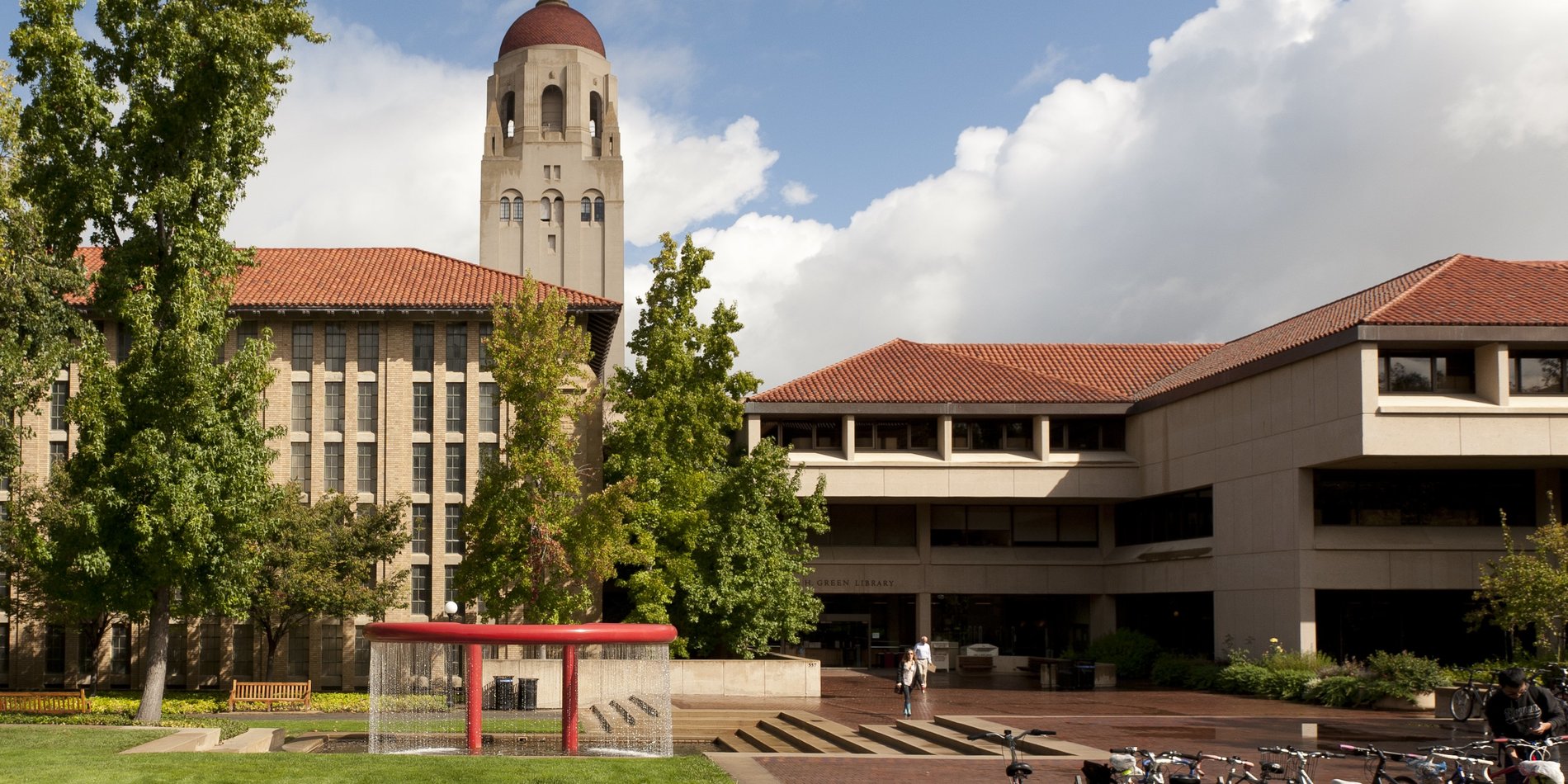
Stanford Libraries
Stanford Libraries are home to many interesting collections and exhibits. Please note that access during the weekend may be limited, see the Stanford Libraries page for more information. You can also visit virtually and explore the vast collection of online exhibits and resources.
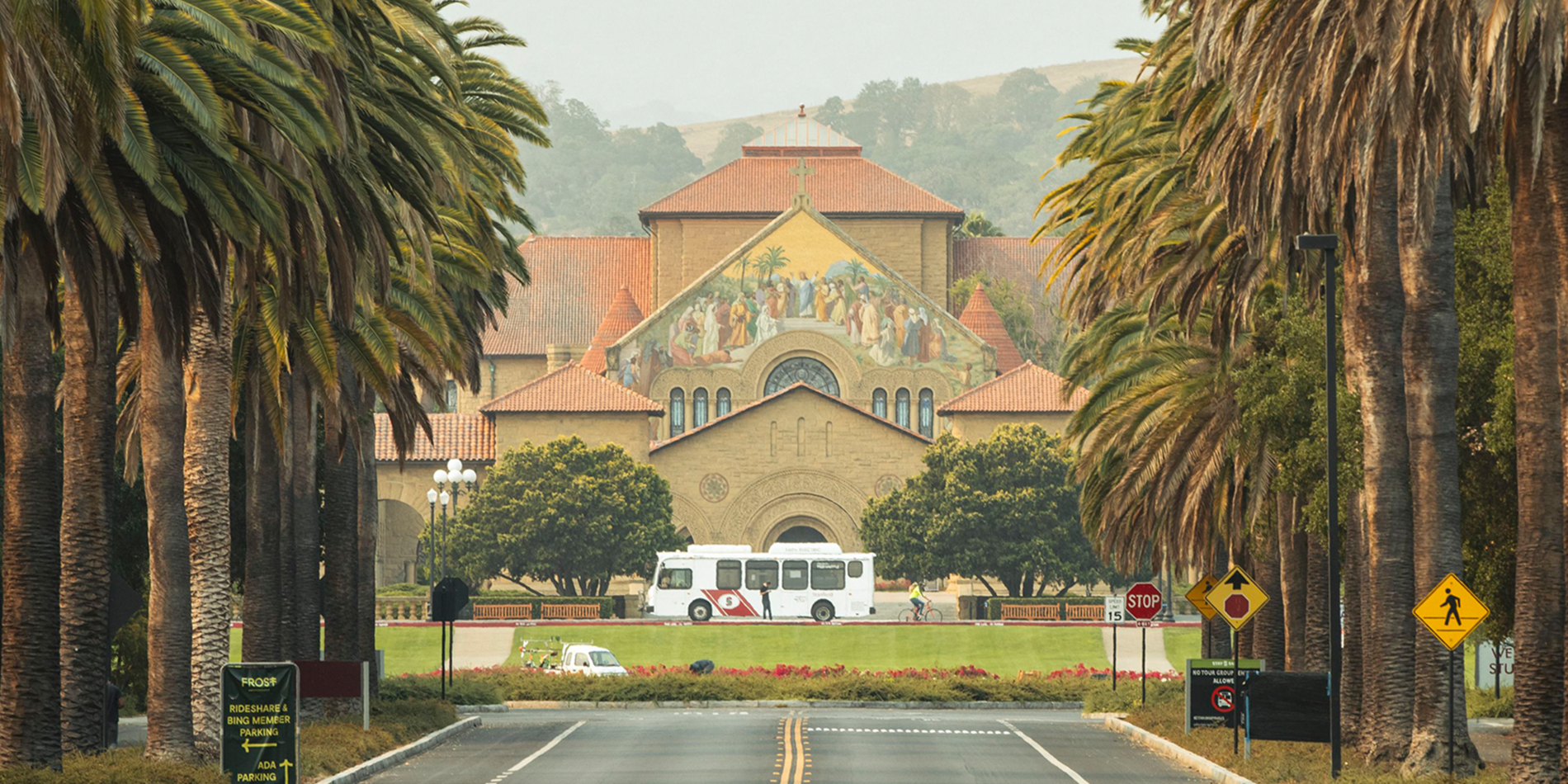
The Oval and Palm Drive
The Oval and Palm Drive mark the gateway to the University. The Oval serves as a relaxing spot for students, faculty, and community members to have picnics, play volleyball, and enjoy the California weather. Palm Drive, lined with roughly 150 Canary Island palm trees, leads to University Avenue and downtown Palo Alto.
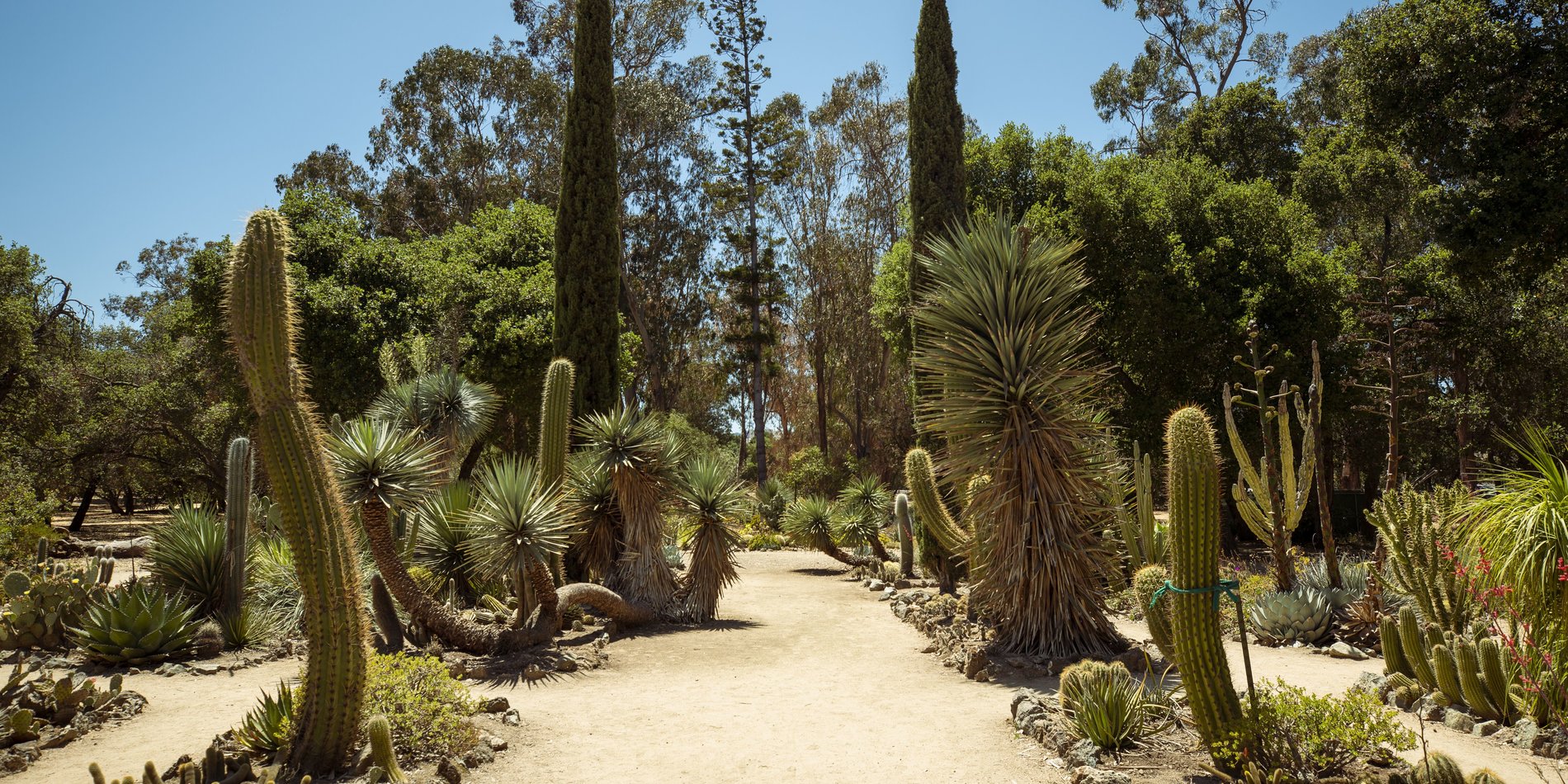
Arizona Cactus Garden
The garden, also known as the Cactus Garden, was designed for Jane and Leland Stanford by landscape architect Rudolf Ulrich between 1881 and 1883. During the early years of the university, the Cactus Garden became the meeting place for many courting Stanford students. Visit this iconic campus destination.
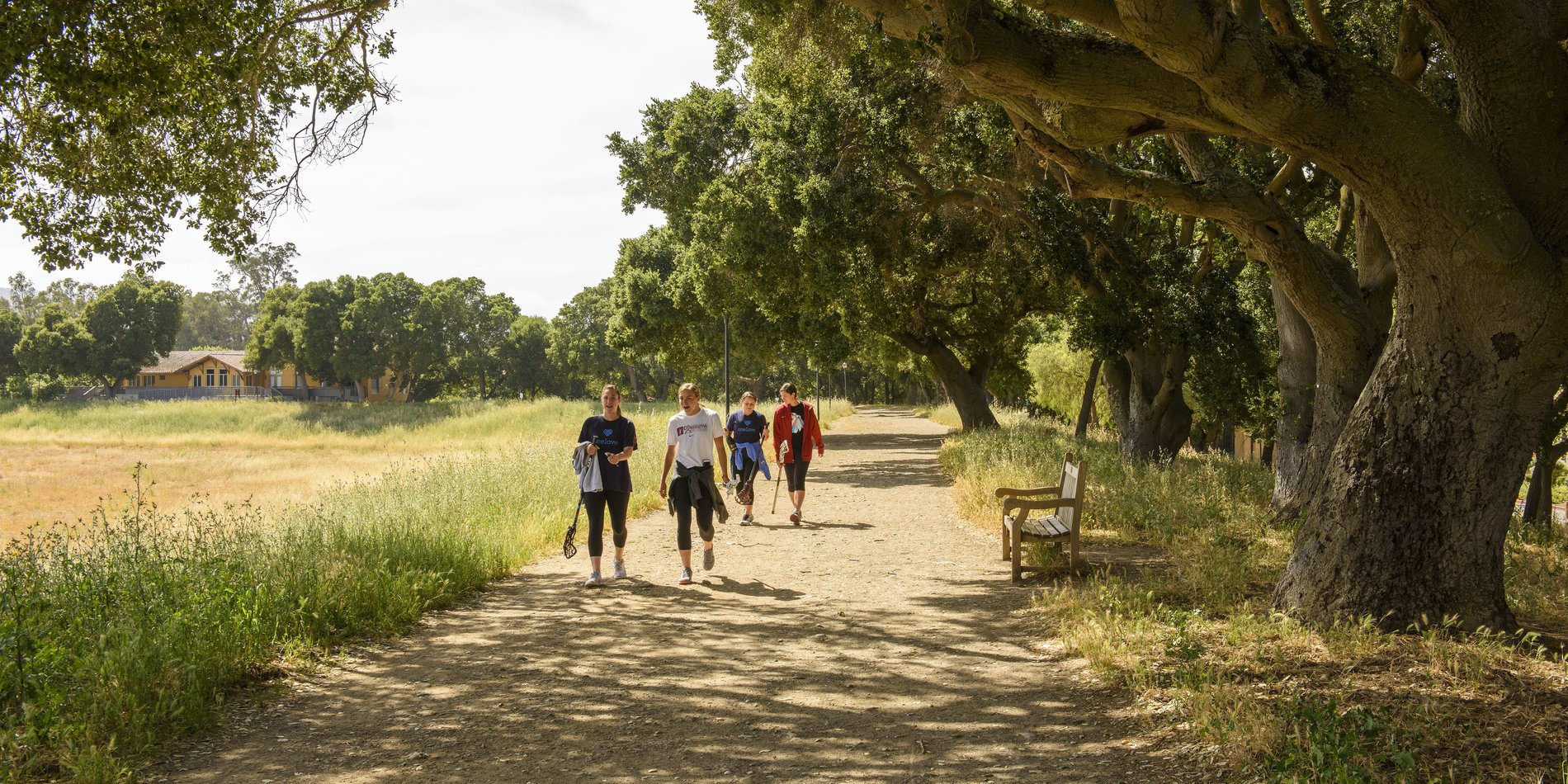
Lake Lagunita
Lake Lagunita is still a beautiful pace to go for a run, walk or just enjoy the view.
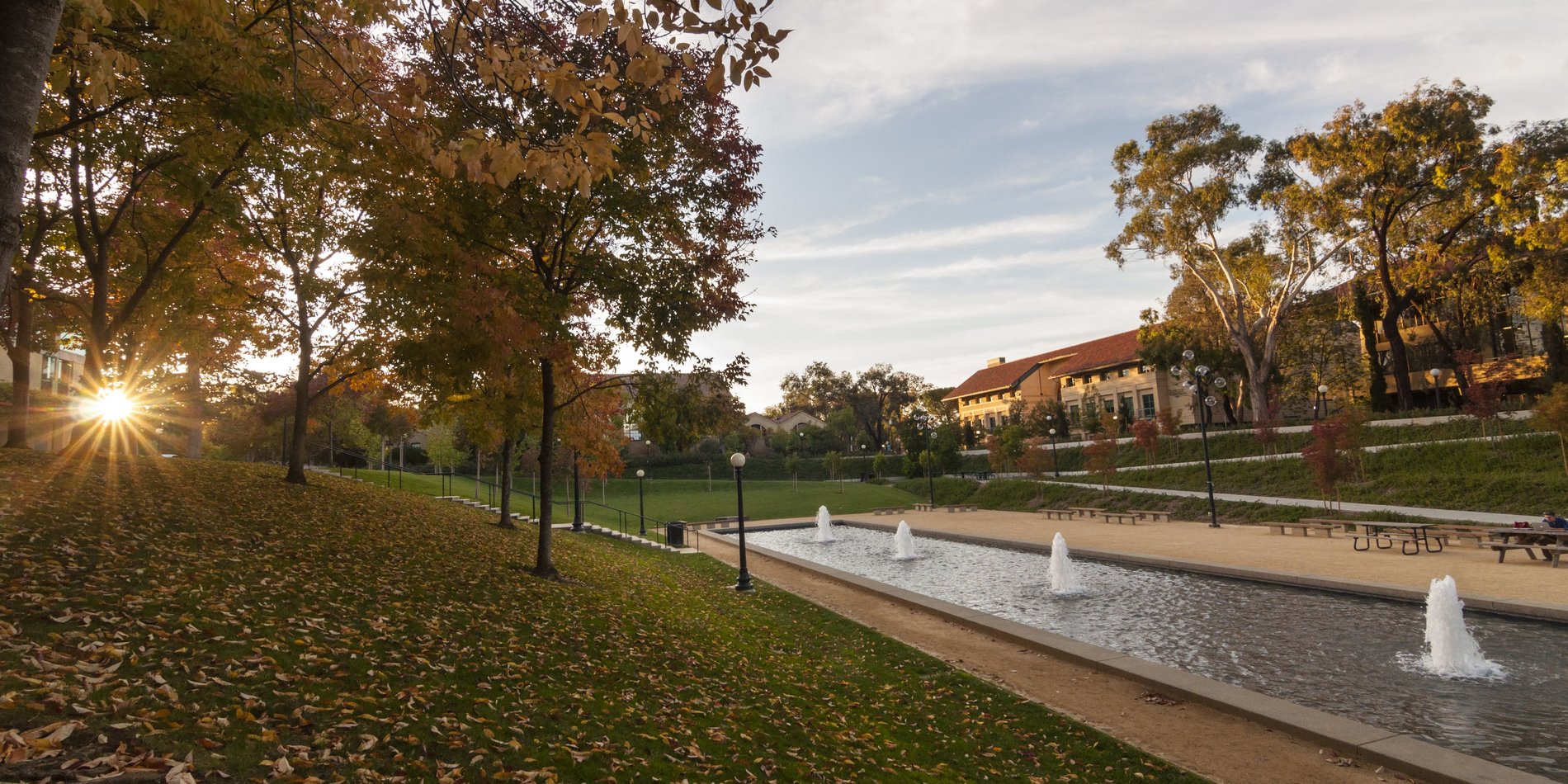
Terman Fountain
Visit a new fountain on campus. This is a popular location for students to wade and relax in while on campus.
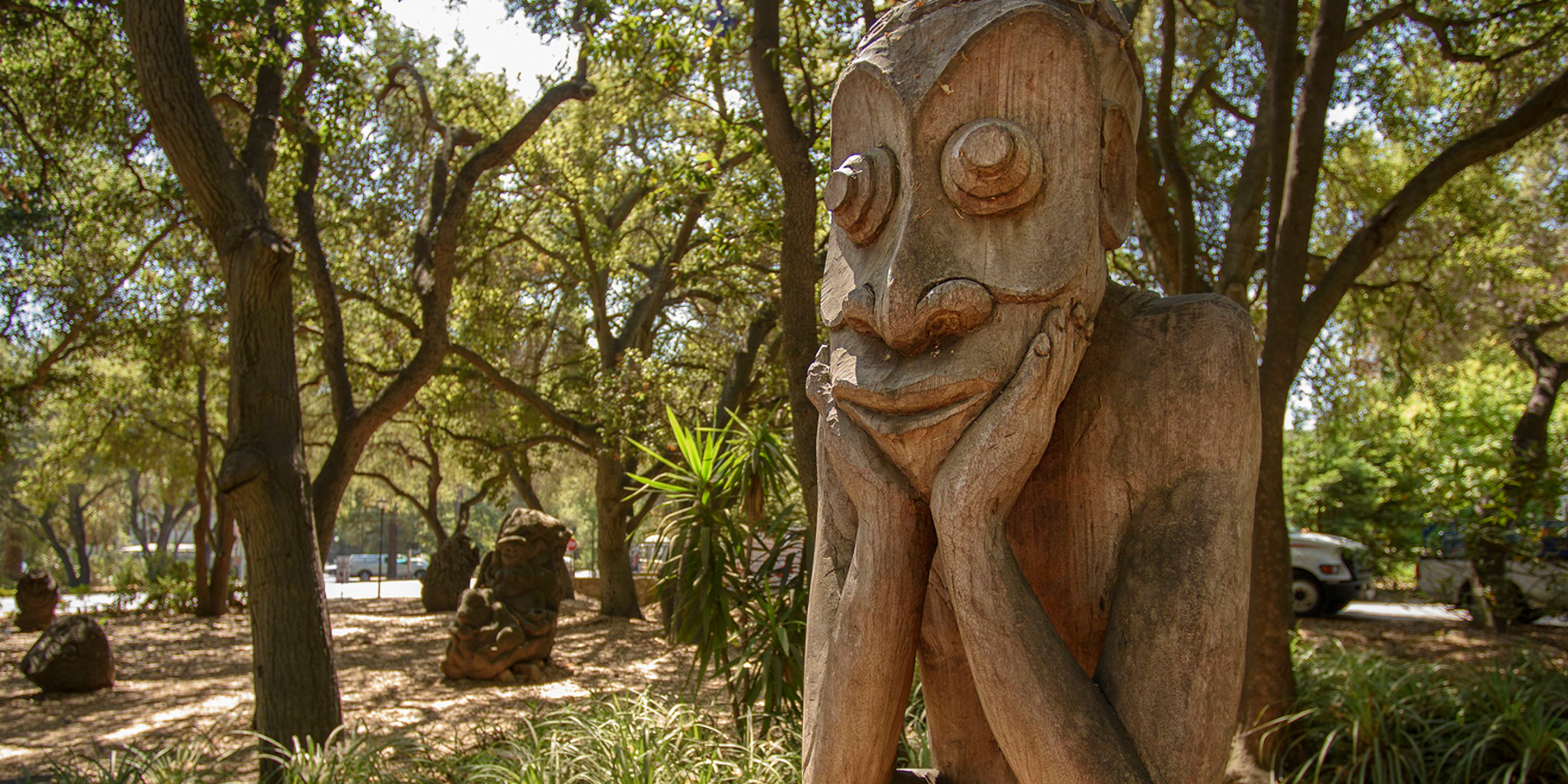
Papua New Guinea Sculpture Garden
This garden contains 40 wood and stone carvings of people, animals, and magical beings that illustrate creation stories and cultural traditions. Ten artists from the inland Sepik River area created the sculptures on-site during a five-month visit in 1994. Visit this iconic campus destination.
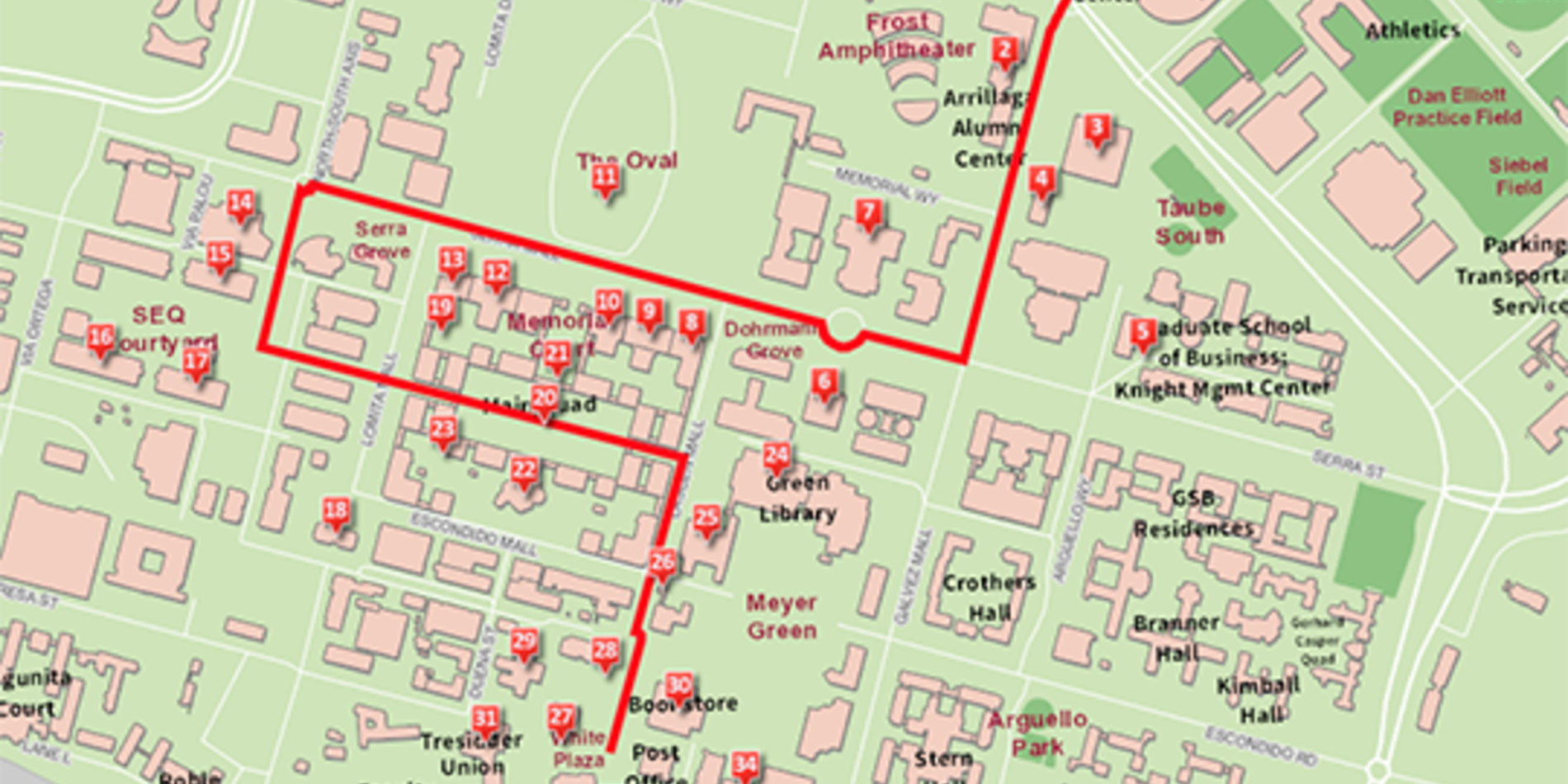
Virtual Campus Walk
Follow the path for a virtual self-guided walking tour featuring photos and information about many sites of central campus.
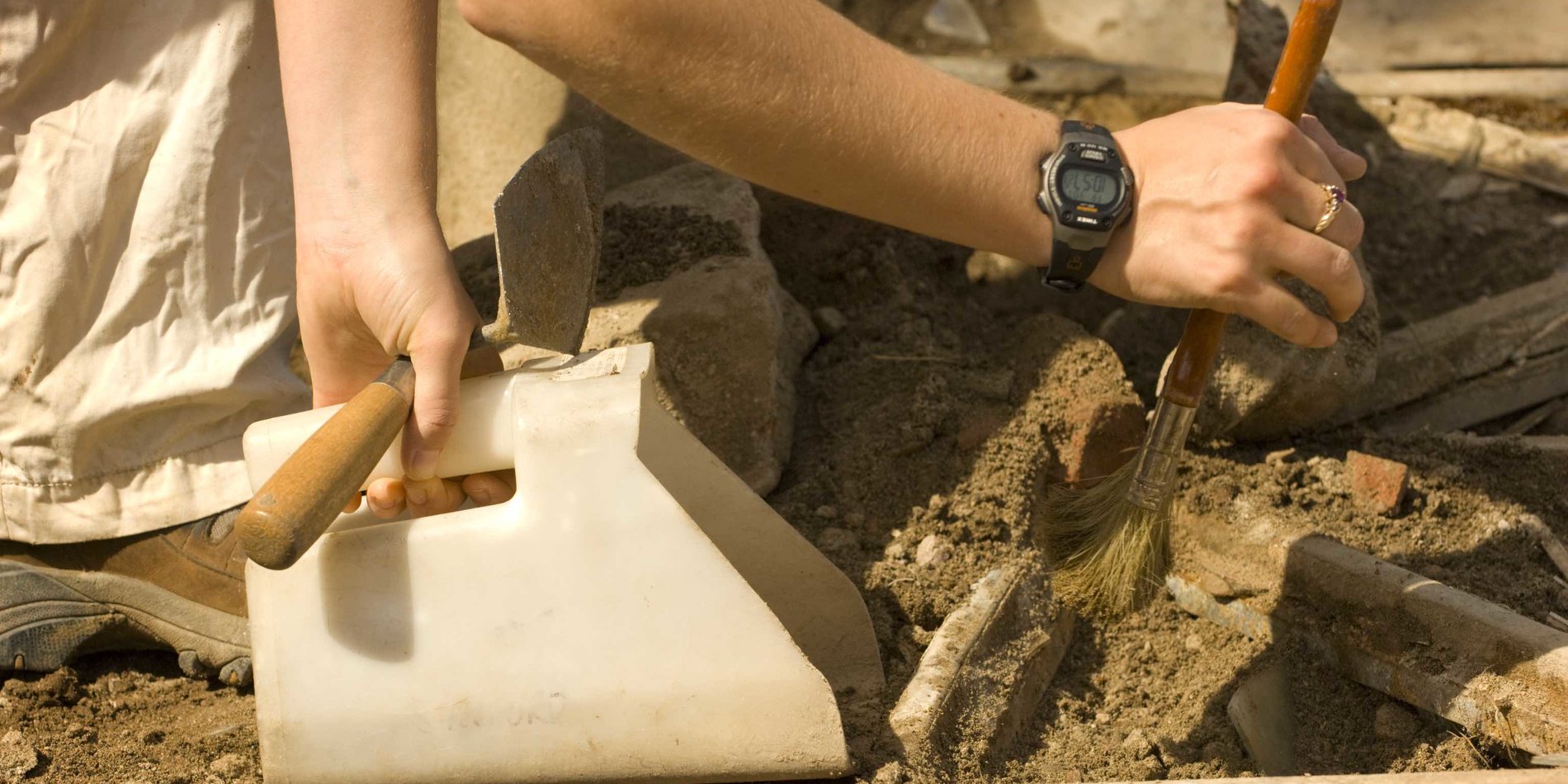
University Archaeology Collections
The Stanford University Archaeology Collections (SUAC) is Stanford's home for hands-on artifact study. SUAC presents original, rotating exhibits of artifacts and photographs from our cultural heritage collections, spanning disciplines, periods, and global cultures.
See SUAC's Events Page for details about exhibits currently on view at the Archaeology Center. See the Archaeology Center's Events Page for information about talks, conferences, and other events held there.
School of Humanities and Sciences Virtual Tour
The School of Humanities and Sciences, encompassing 23 departments and 25 interdisciplinary programs, is the foundation of a liberal arts education at Stanford. This virtual video tour will give you a taste of our beautiful spaces and offerings.
